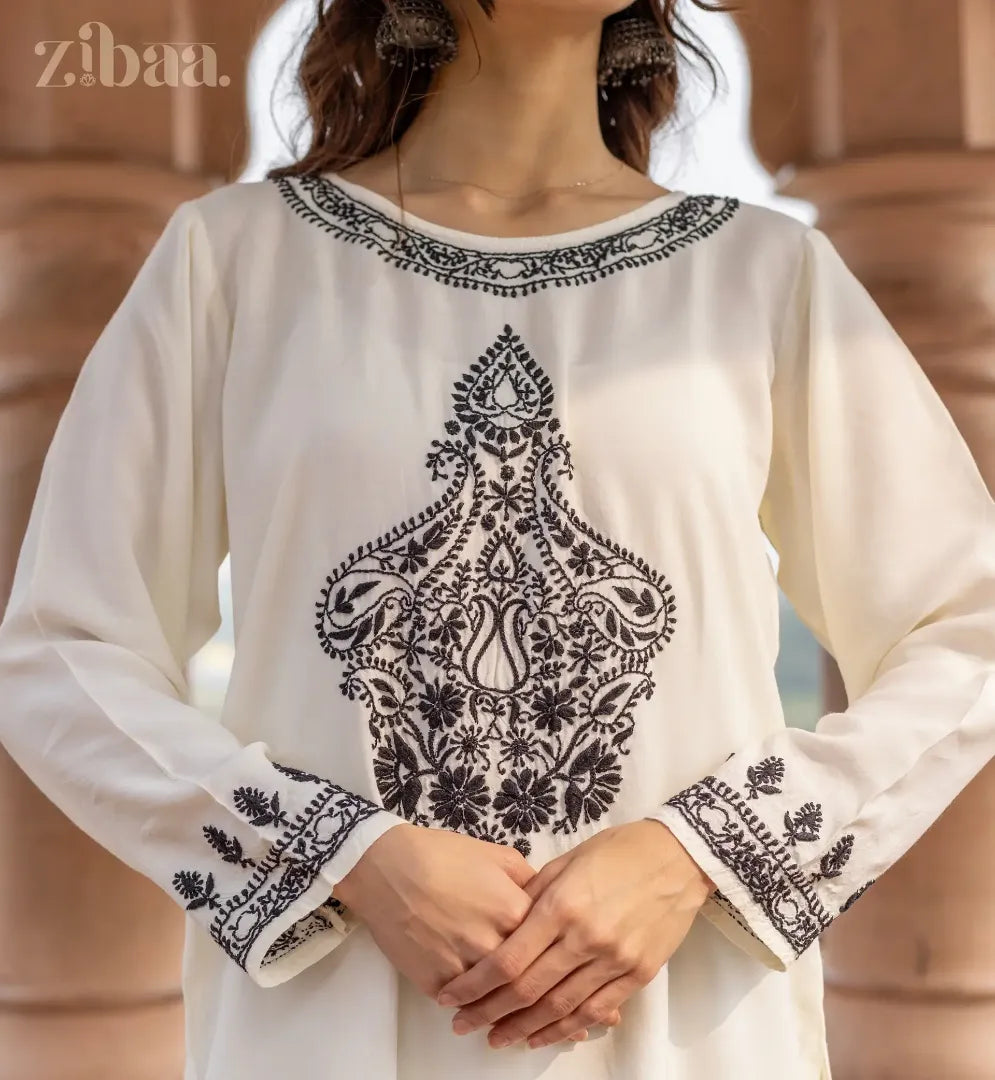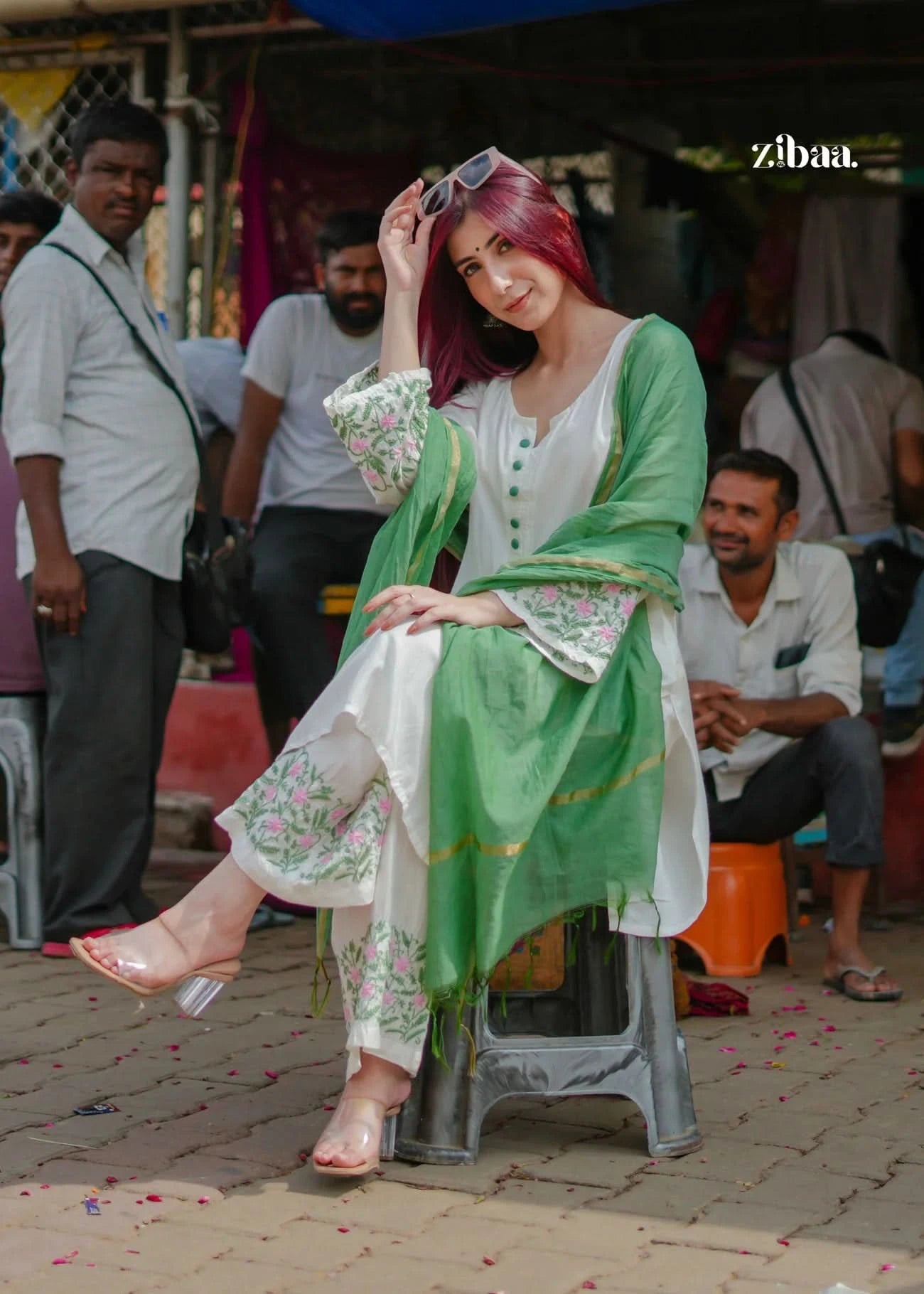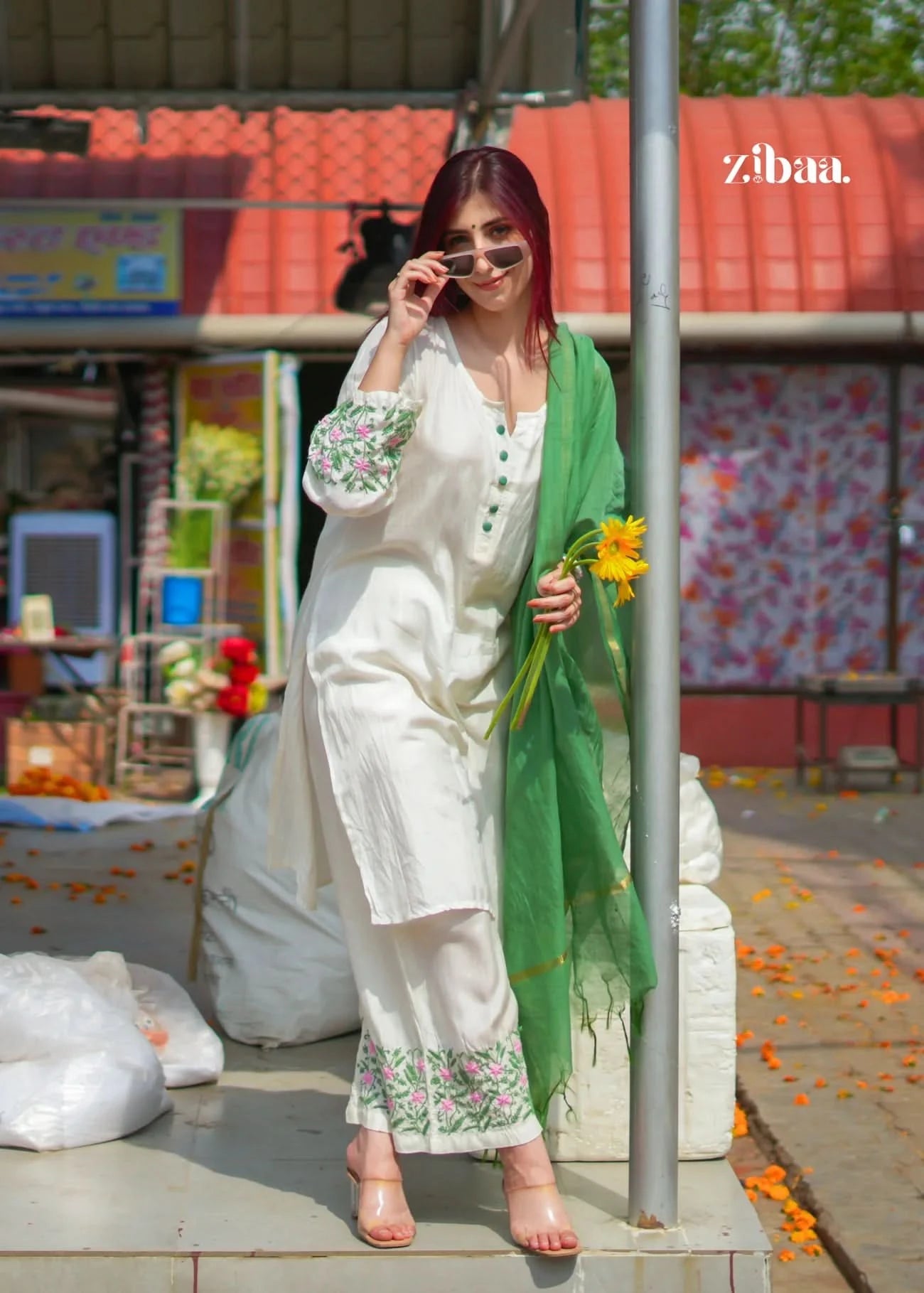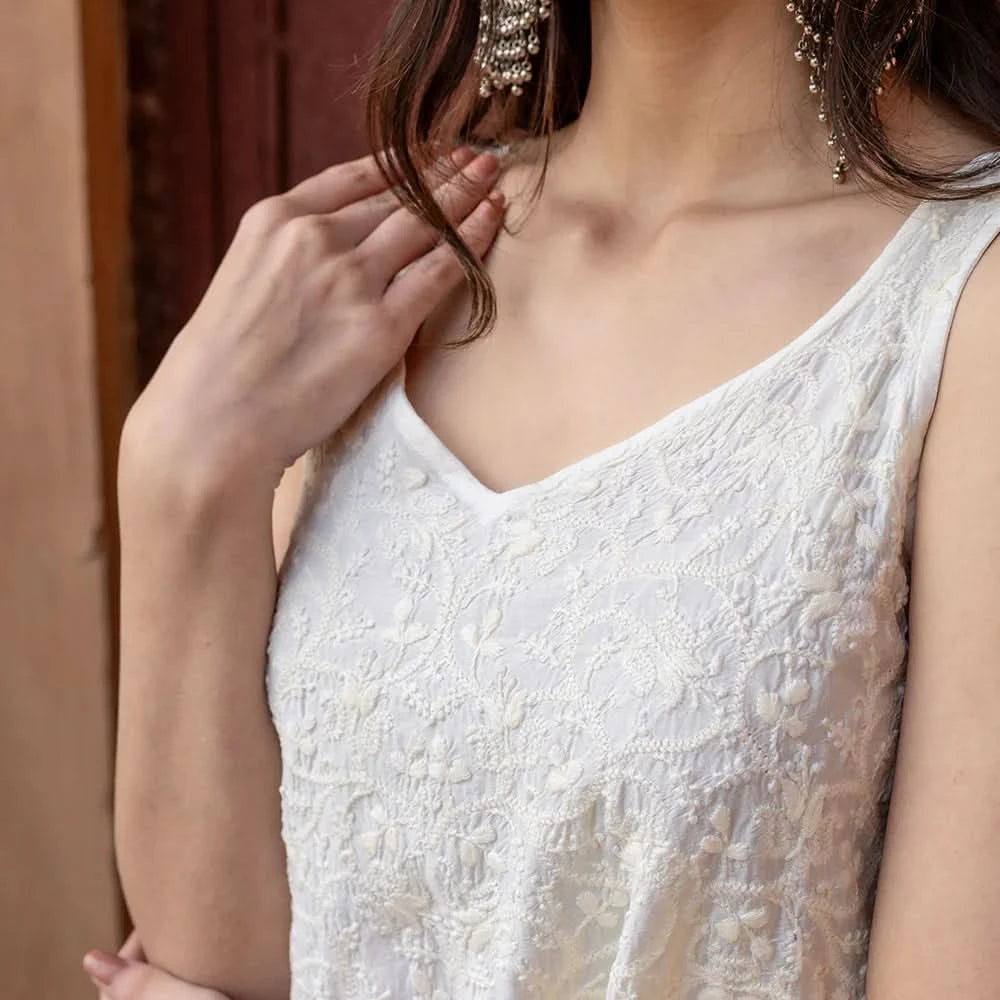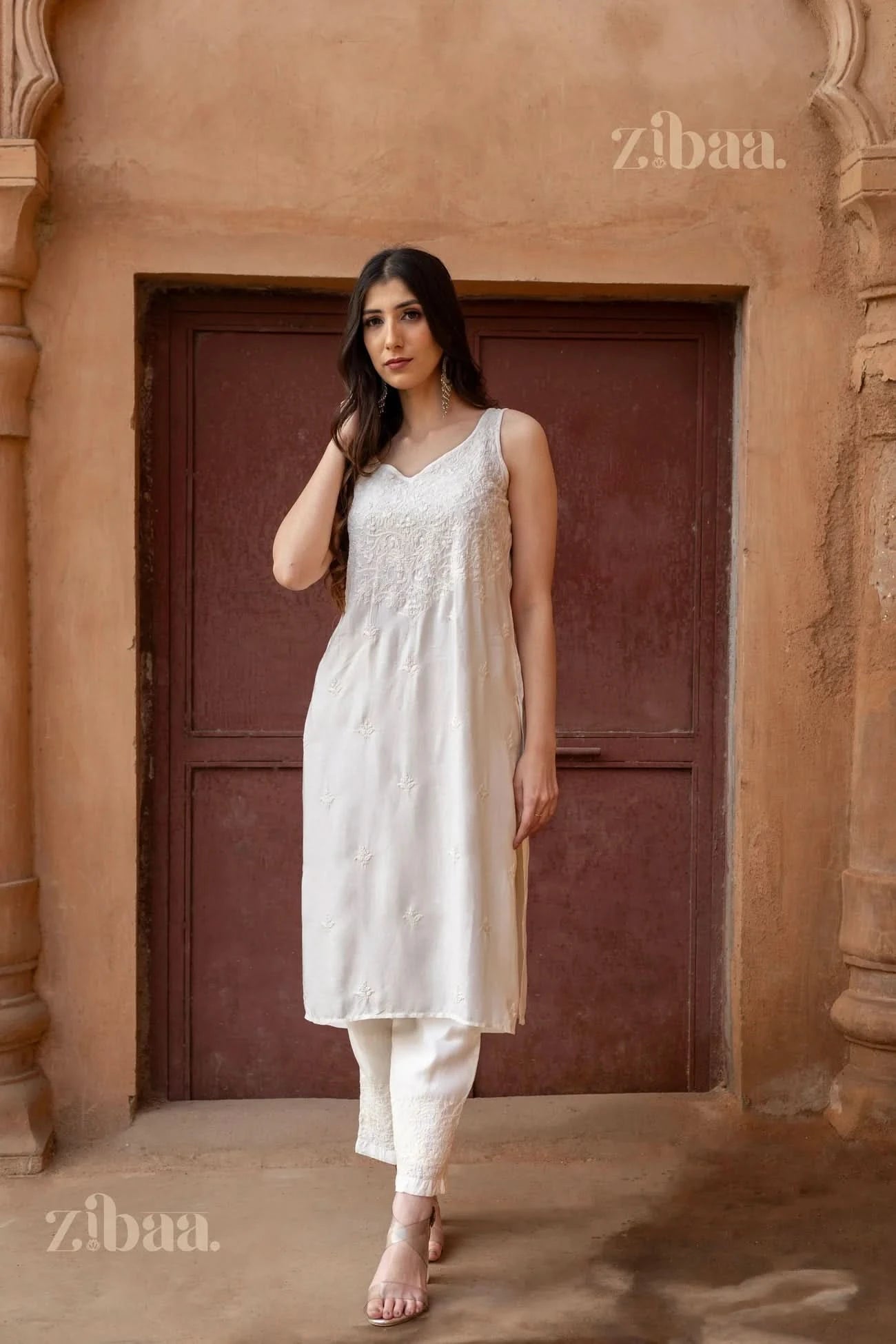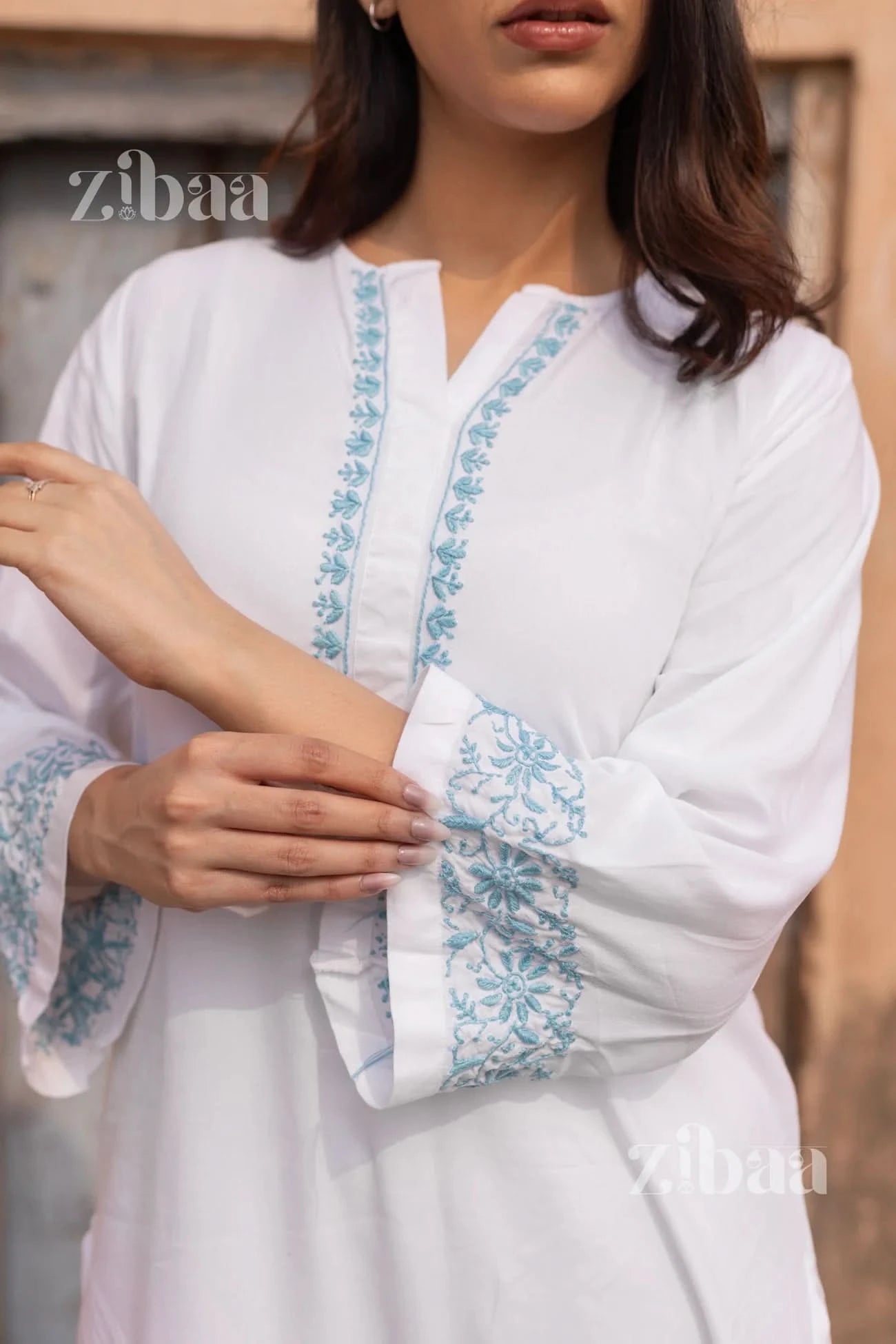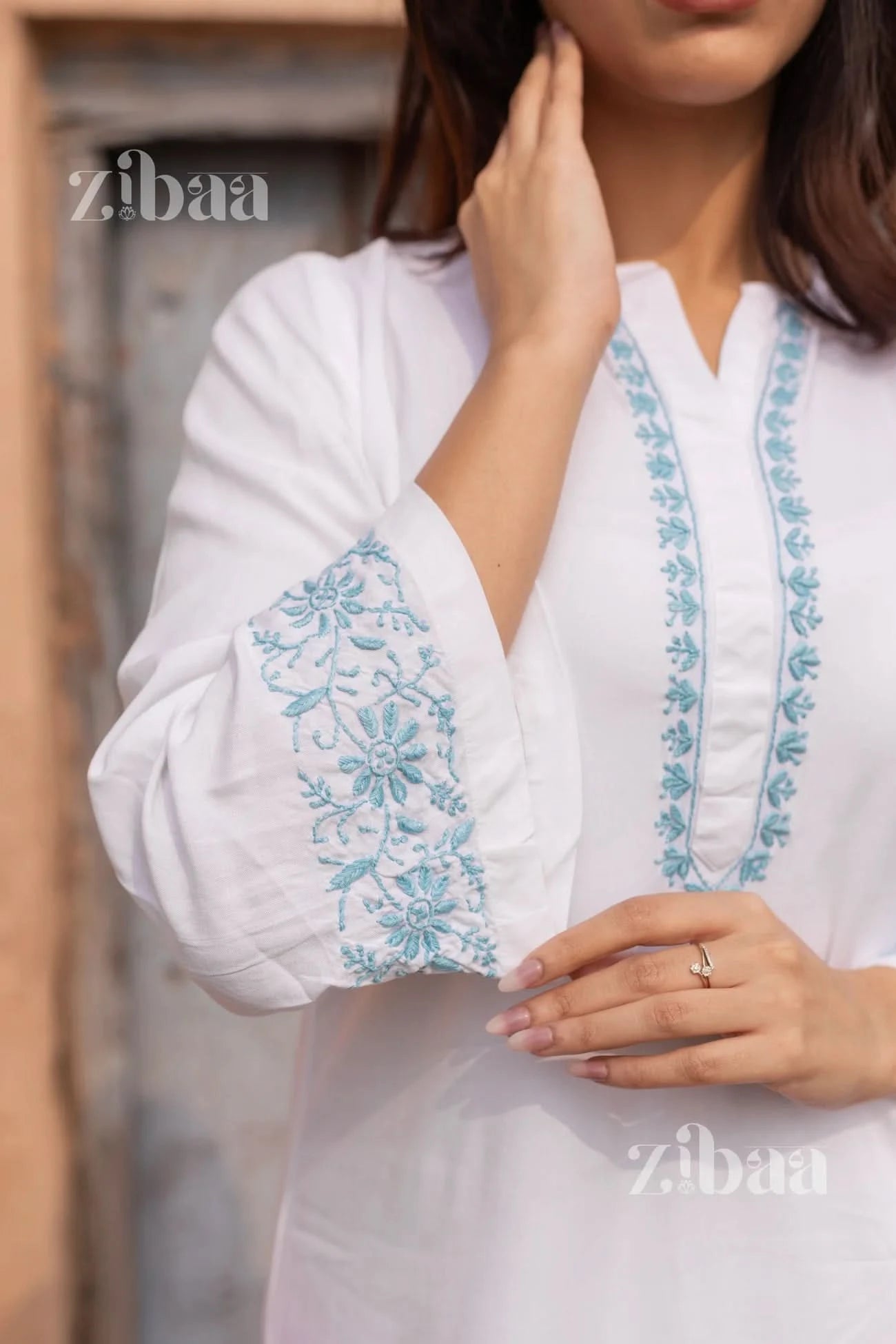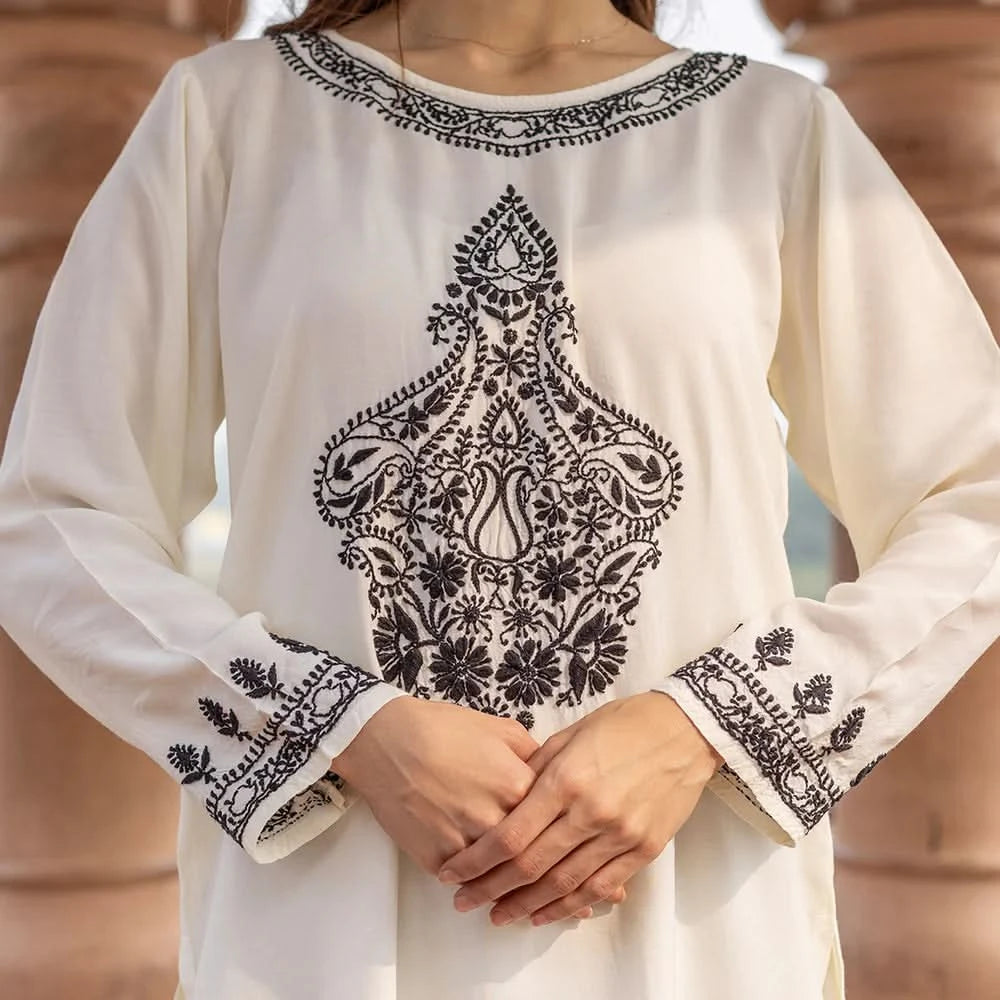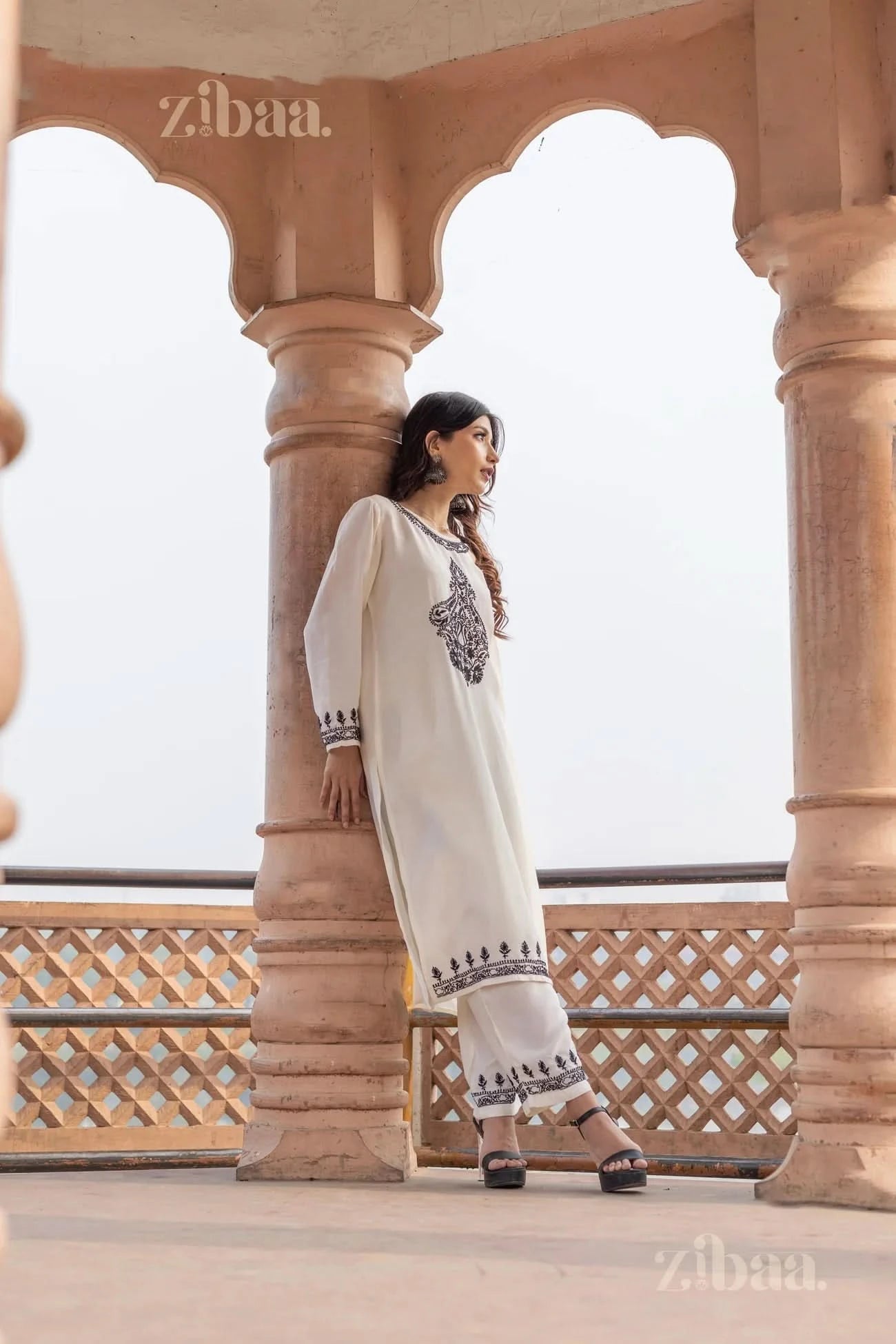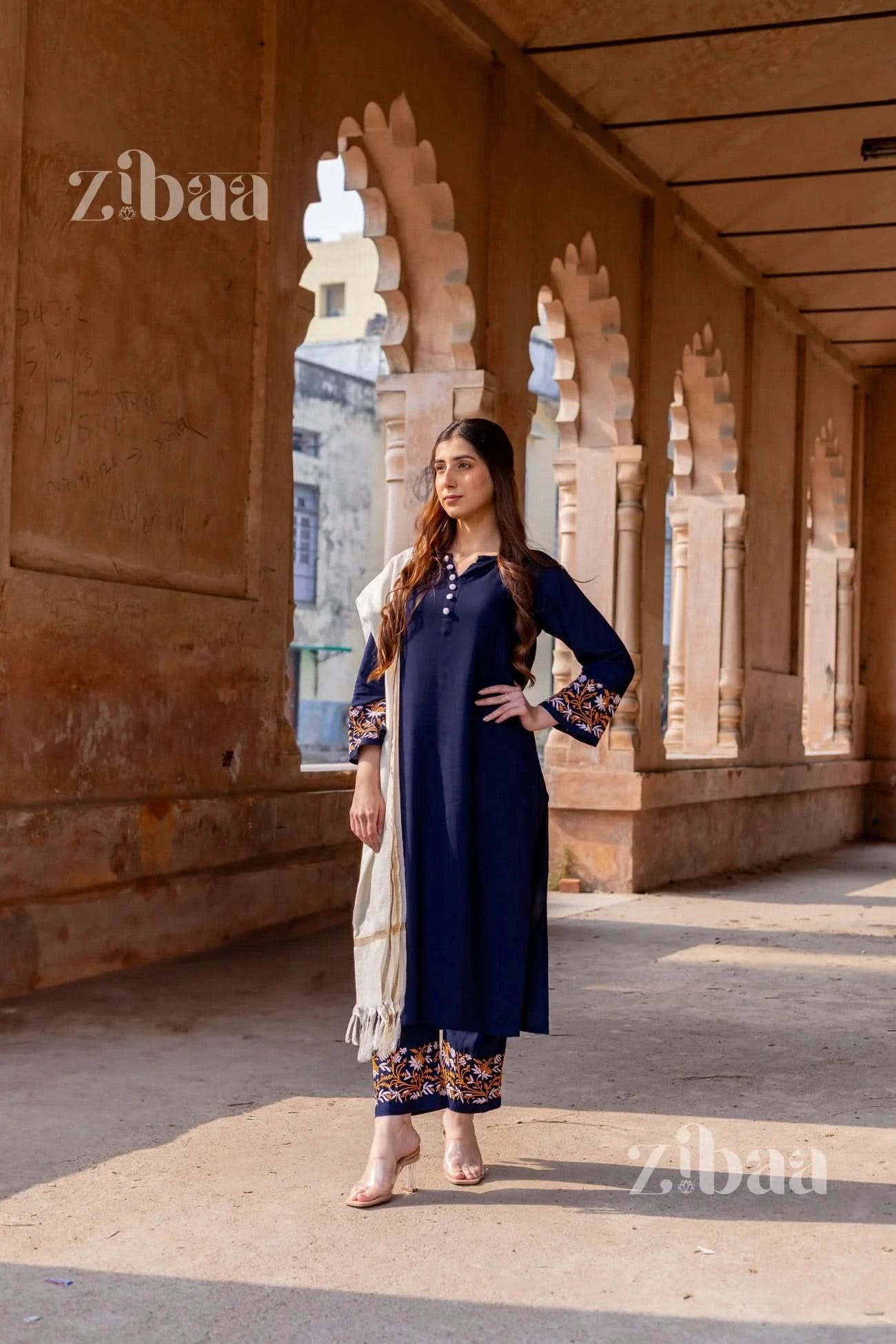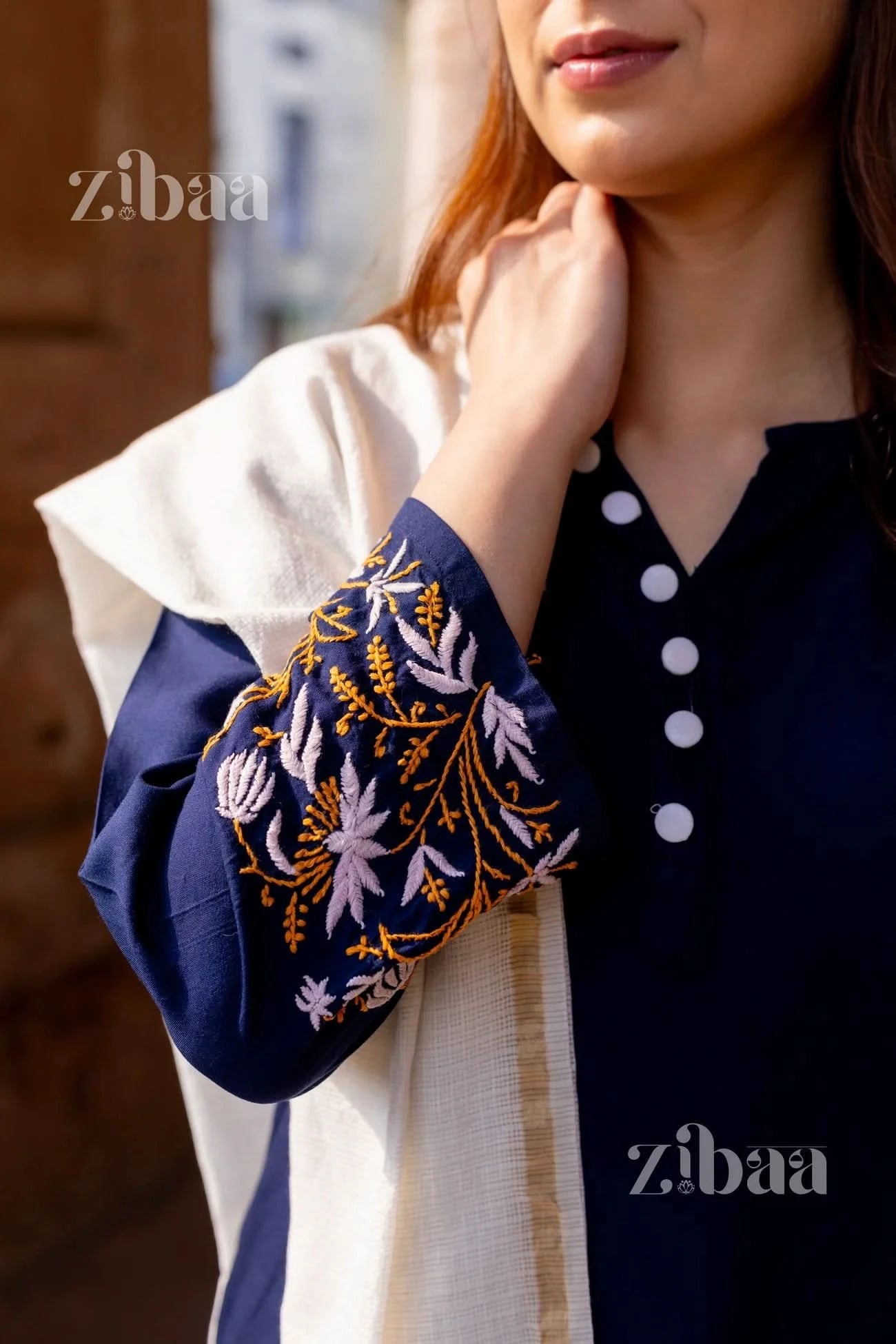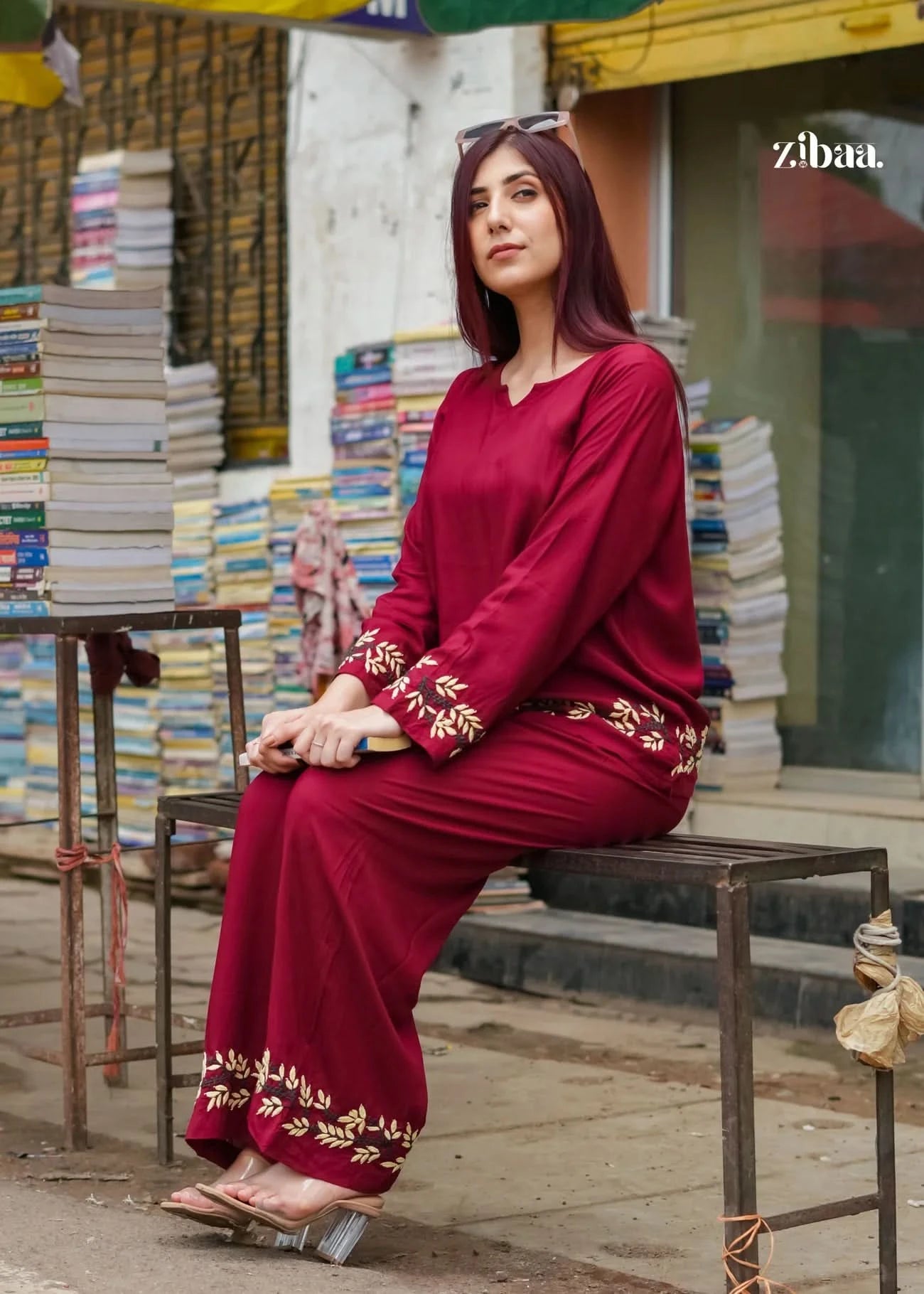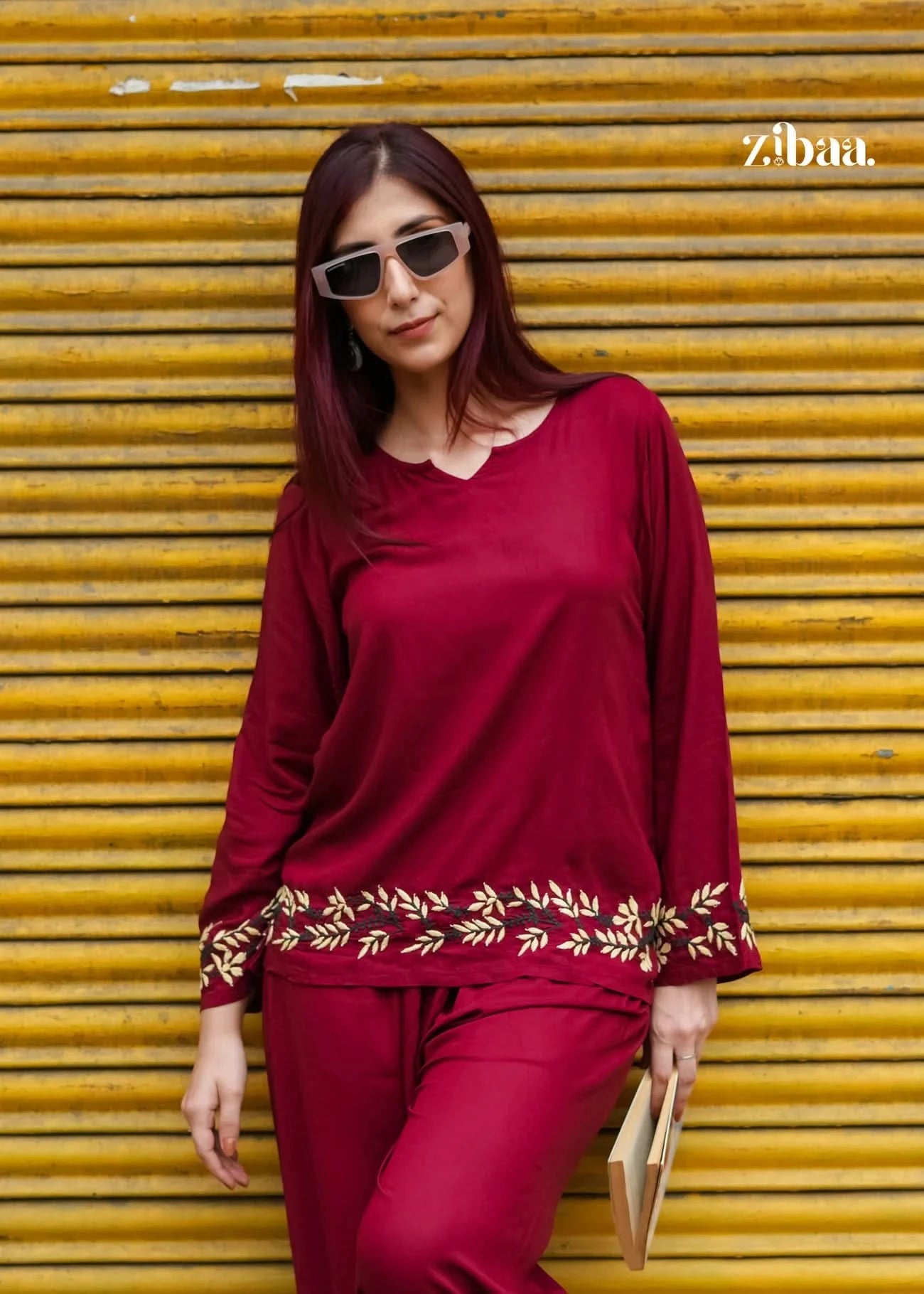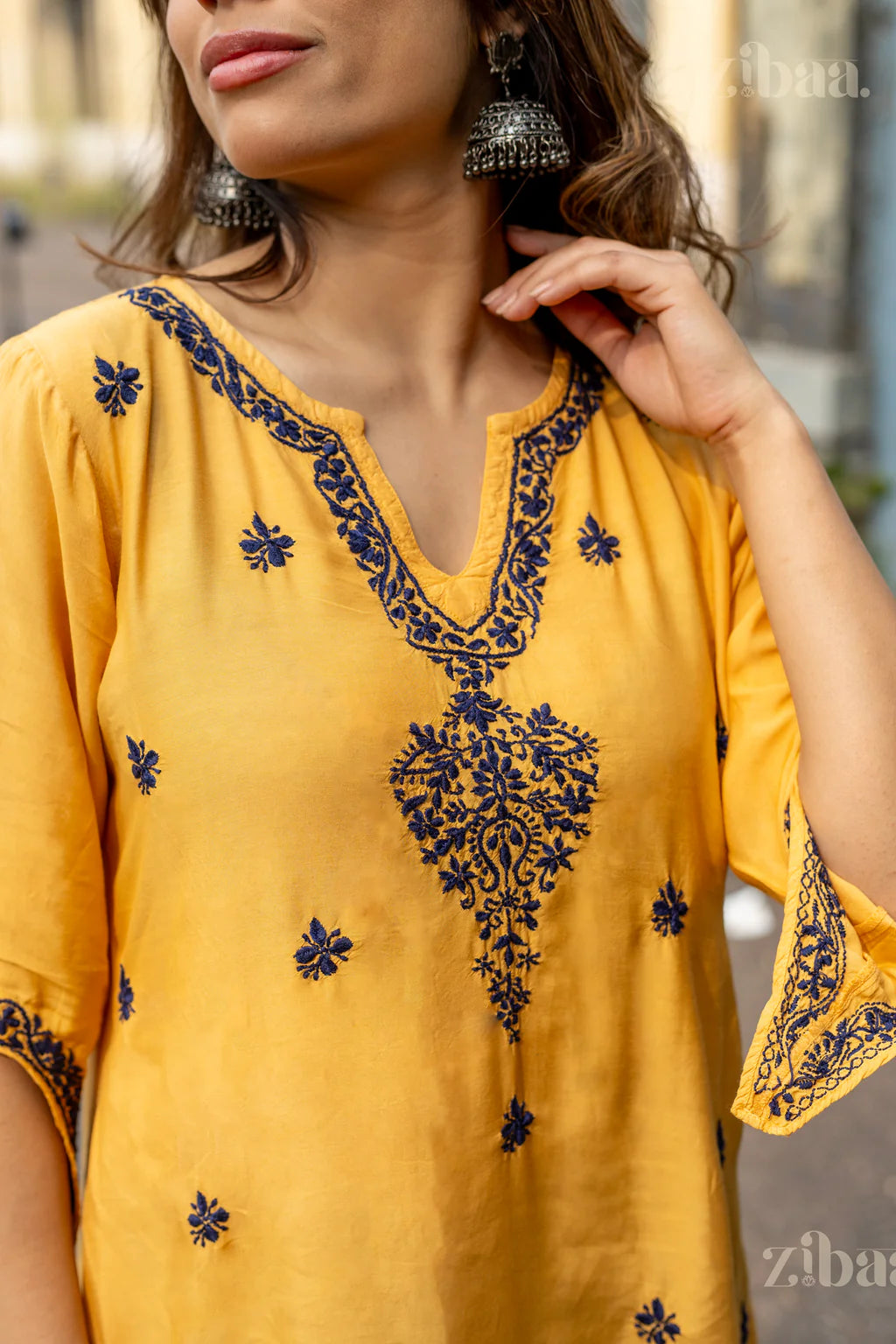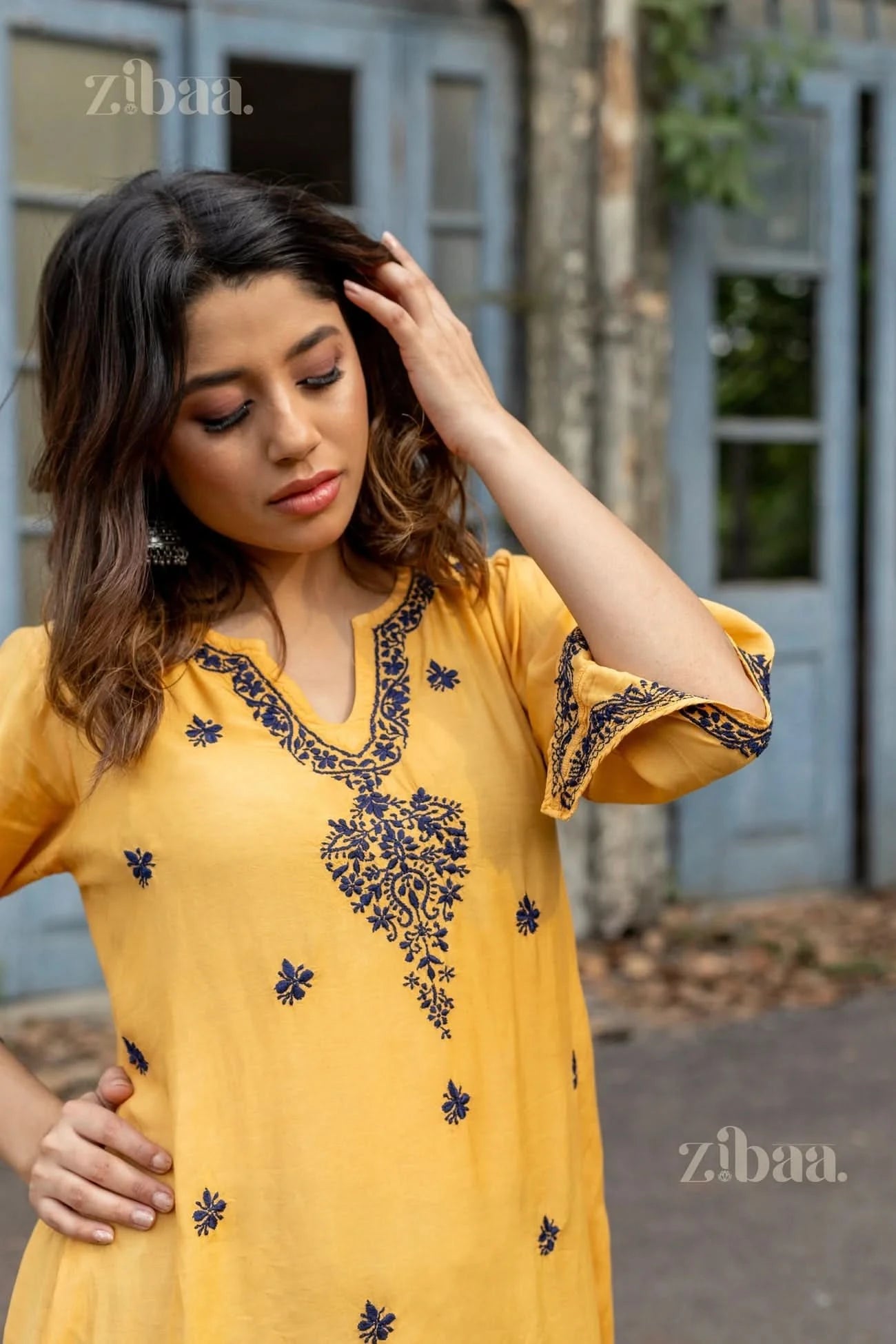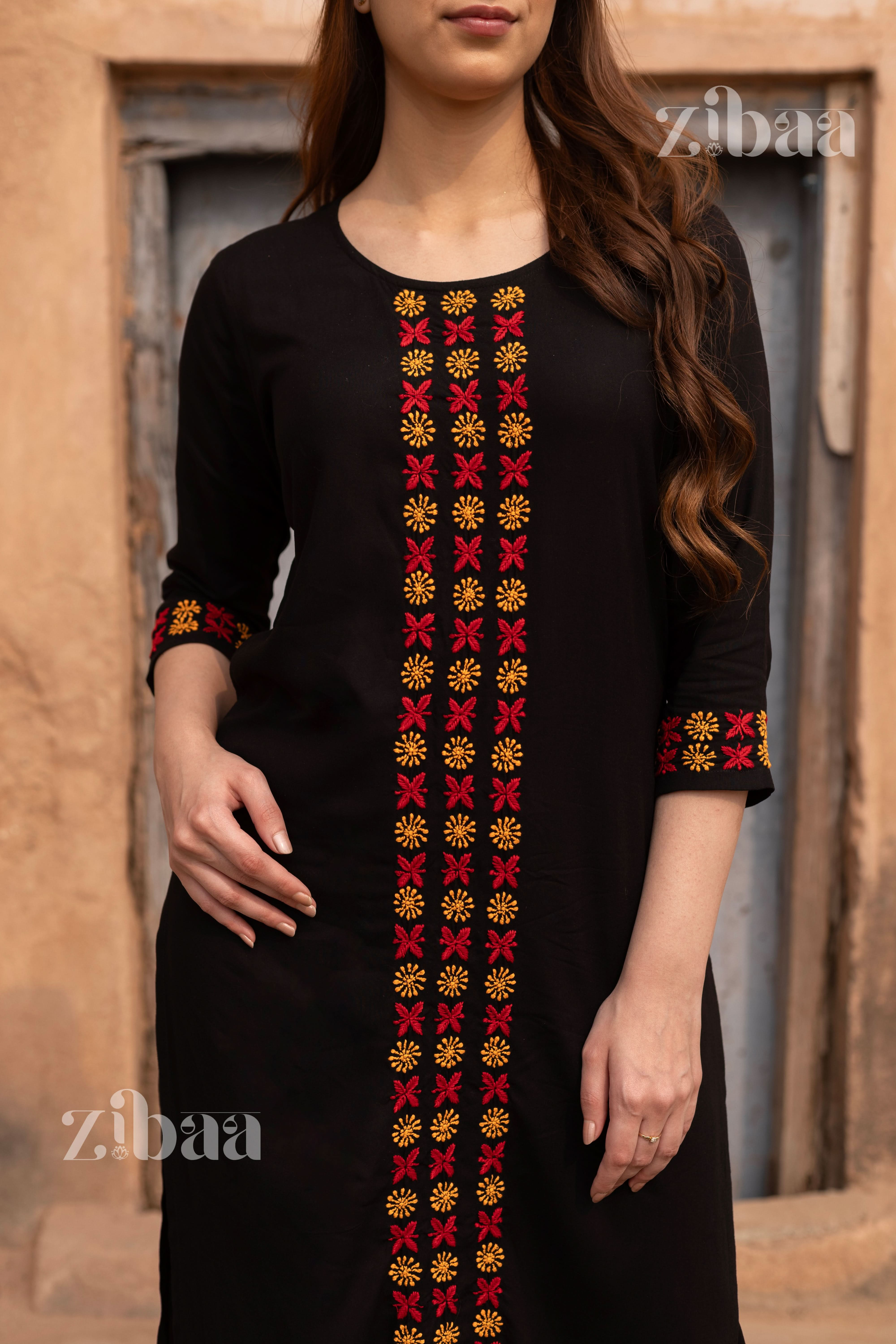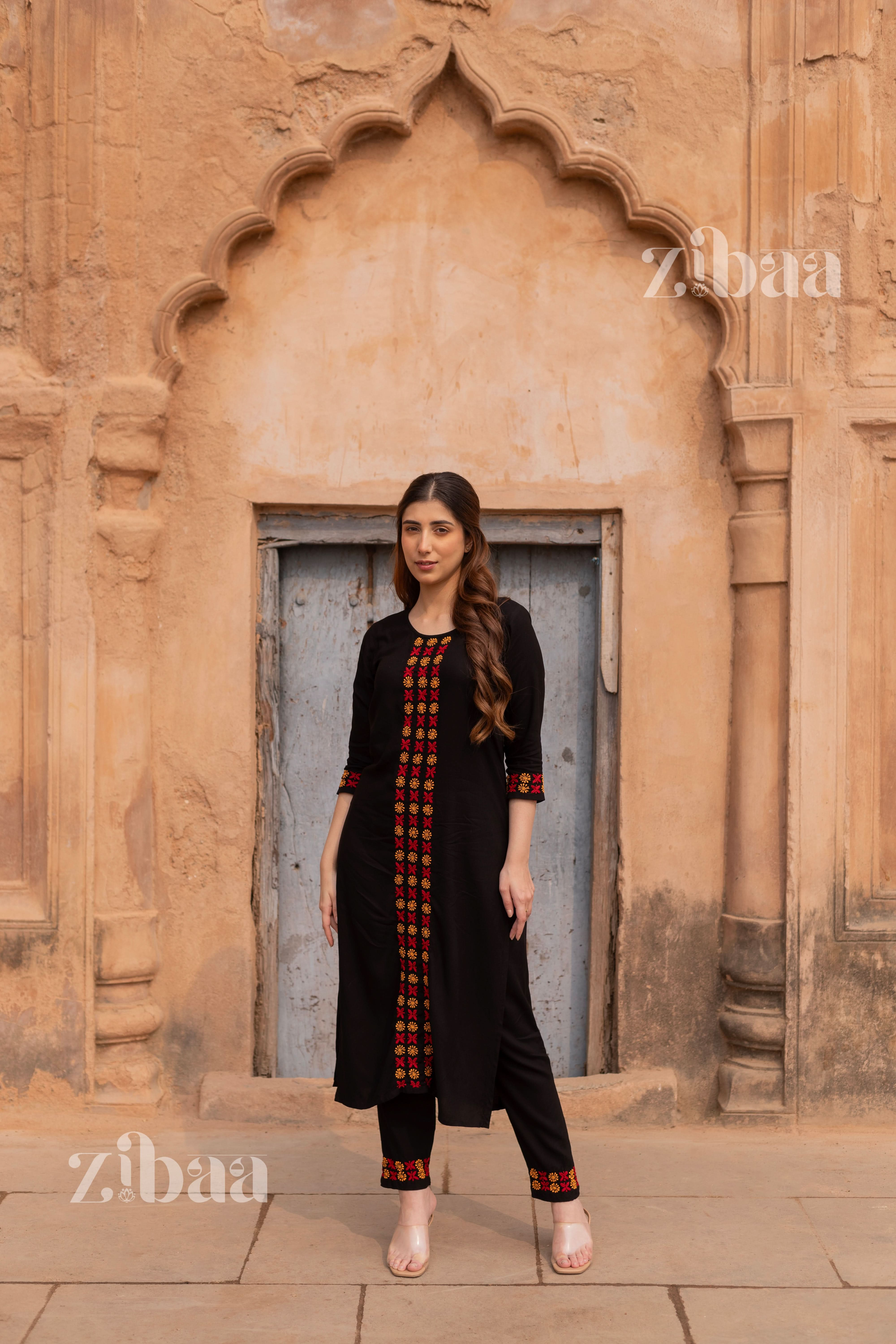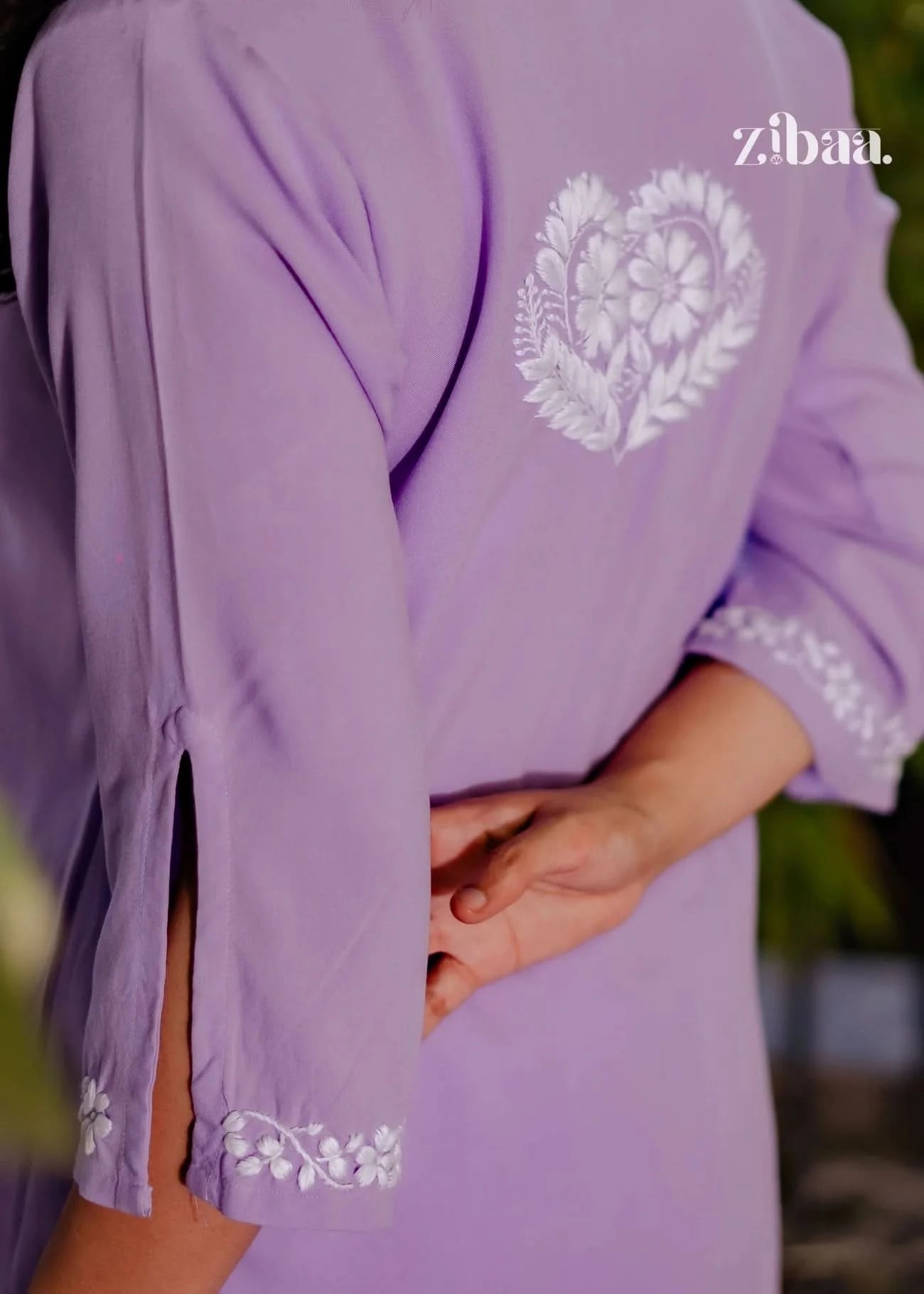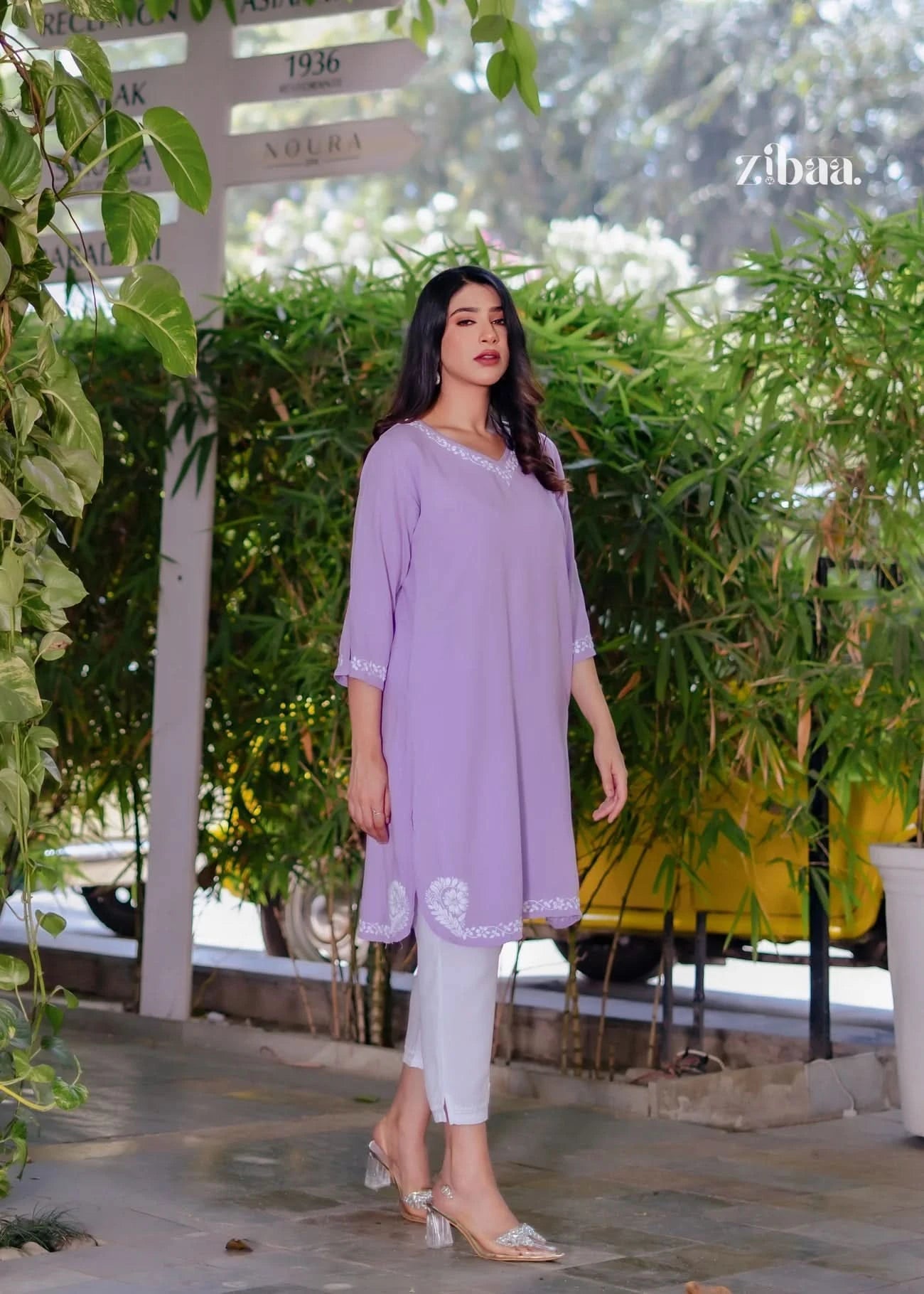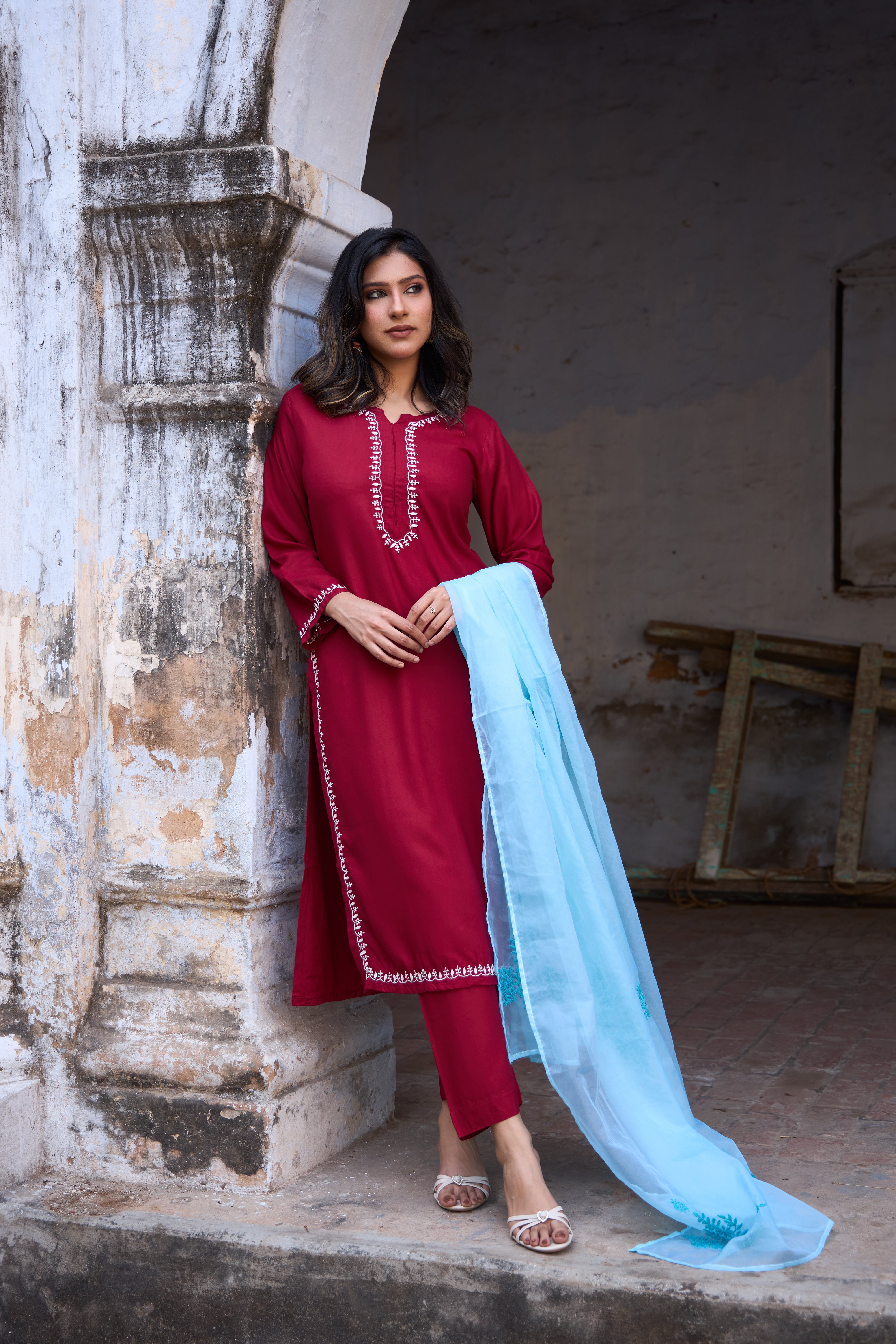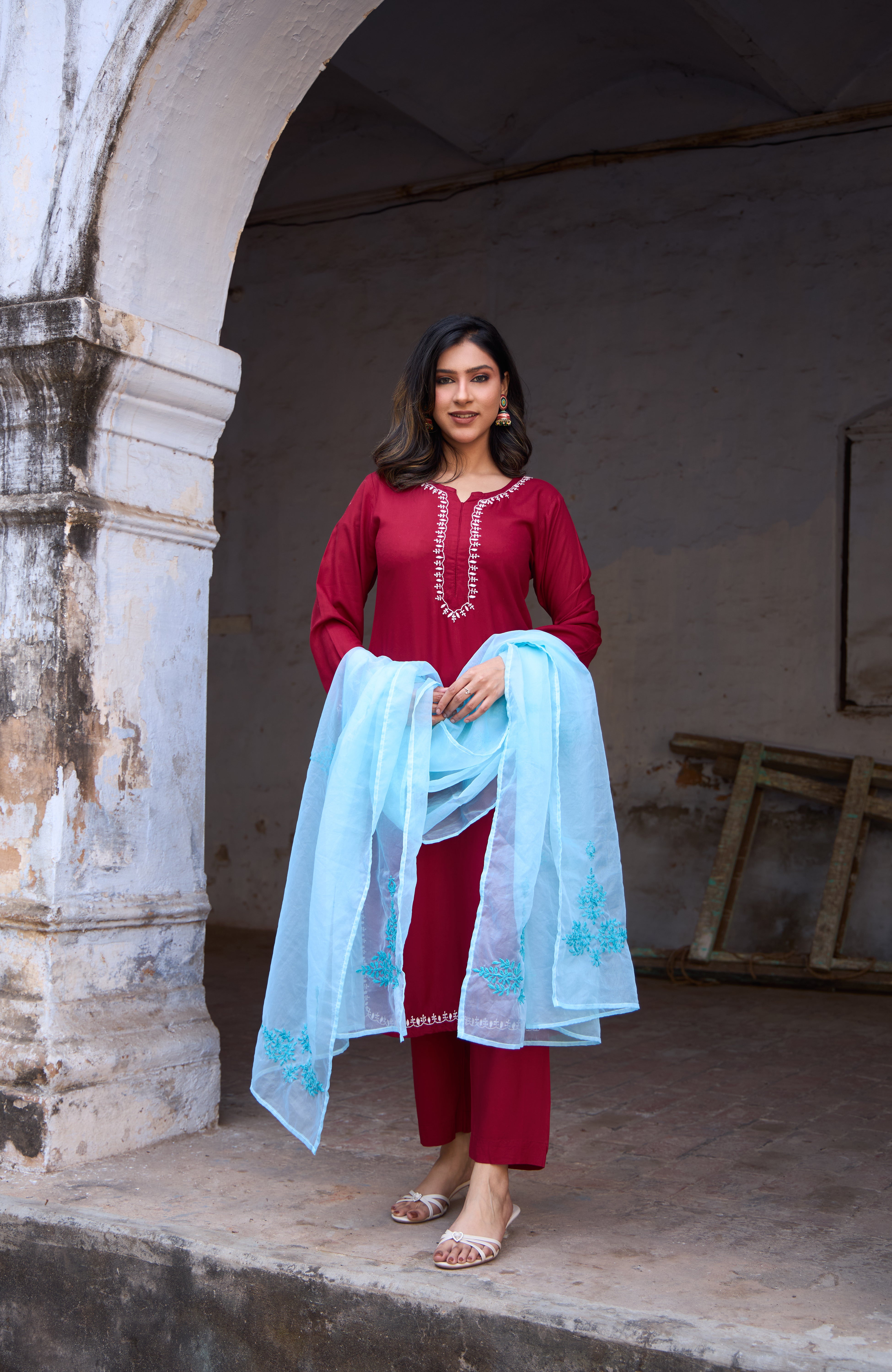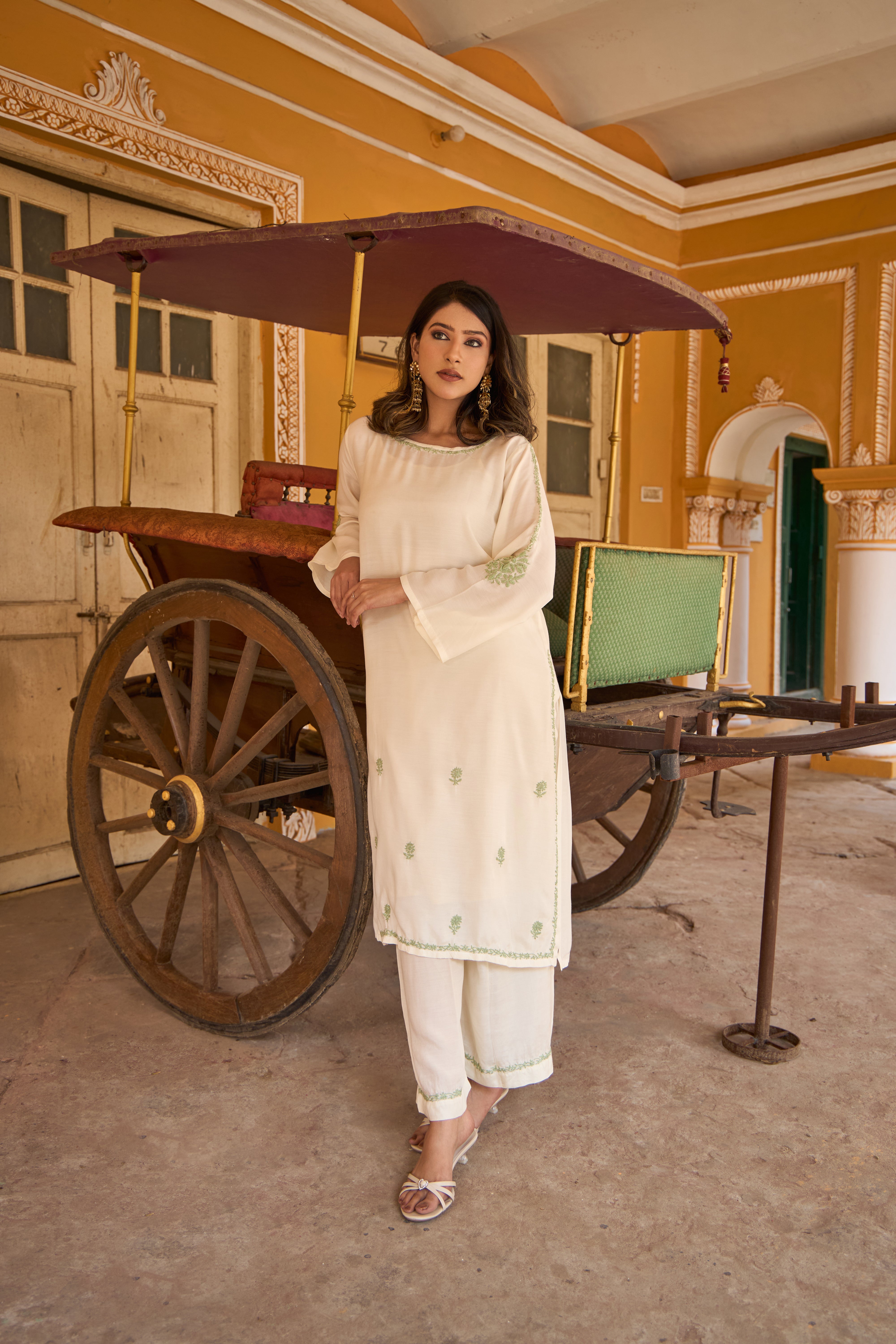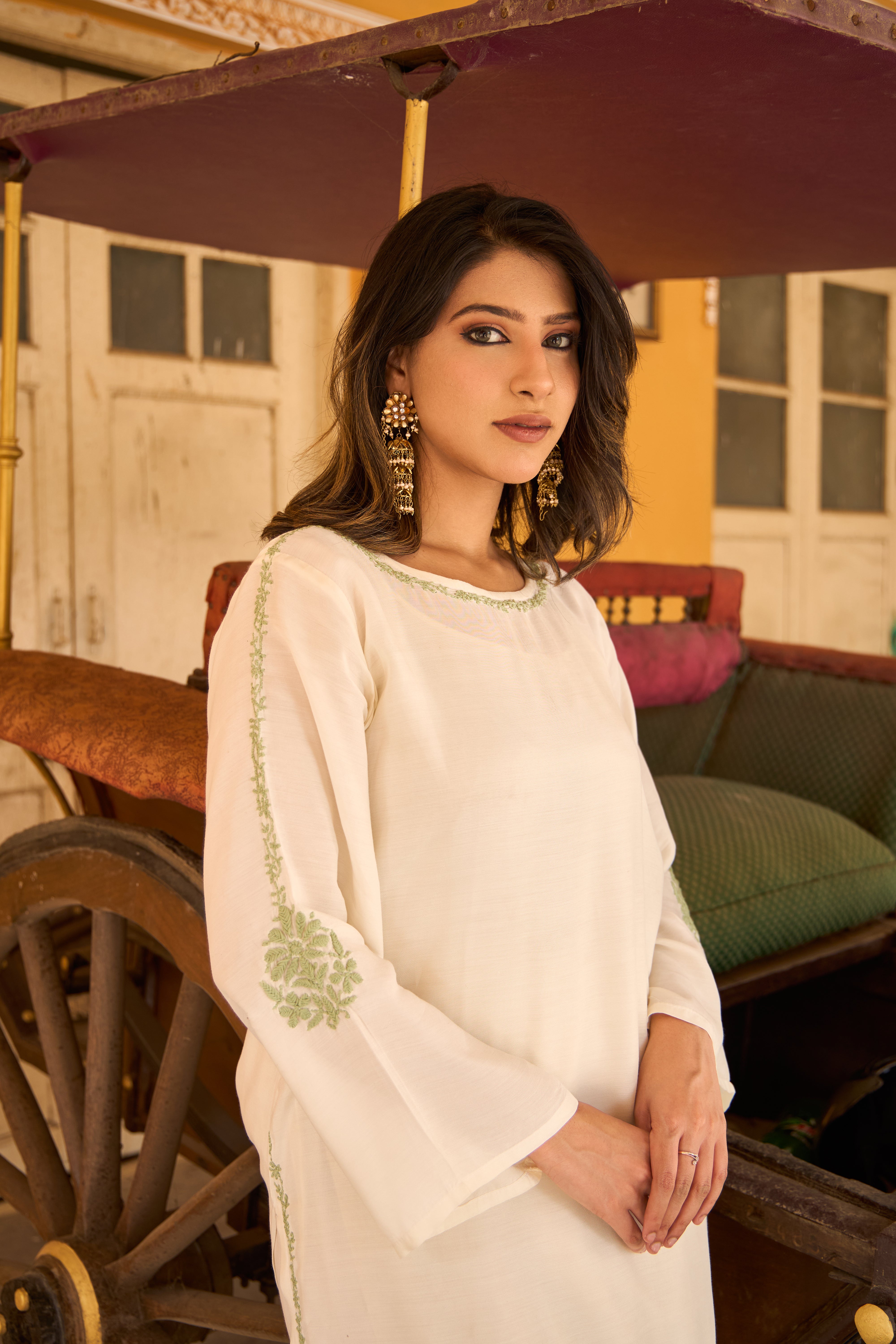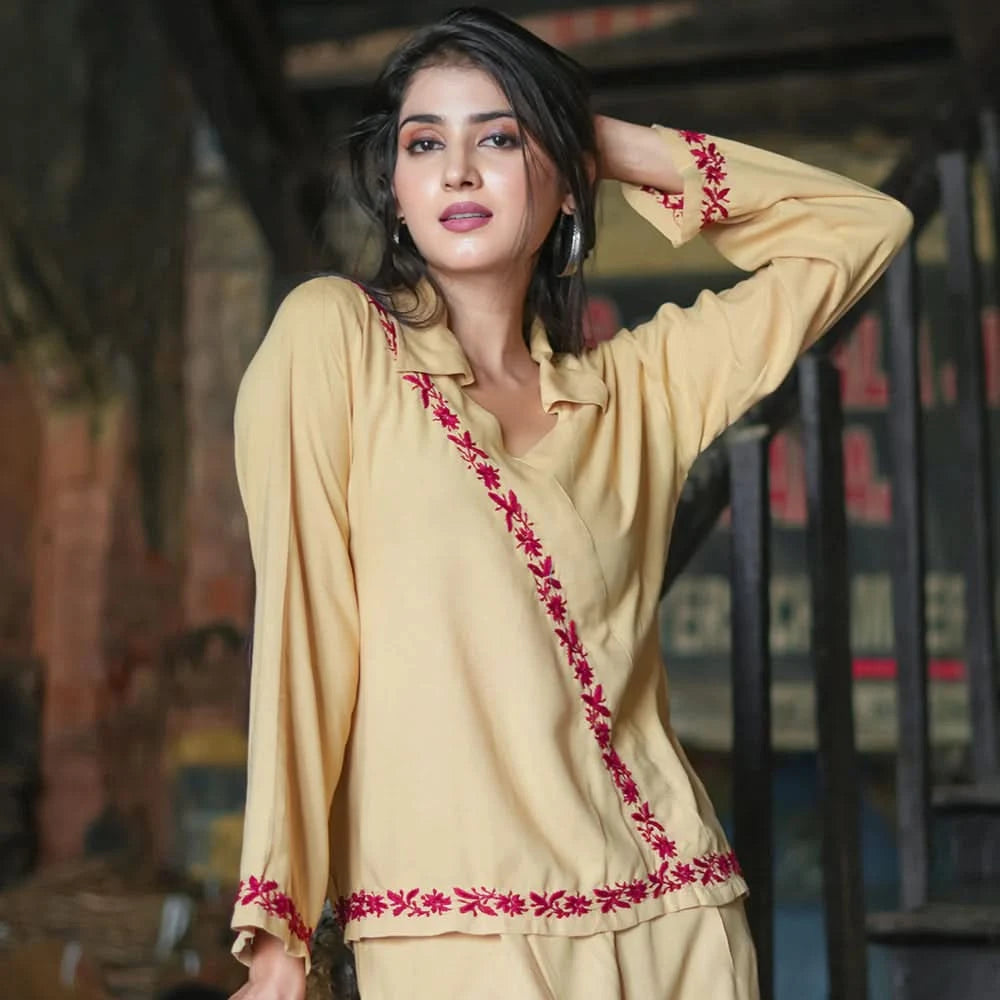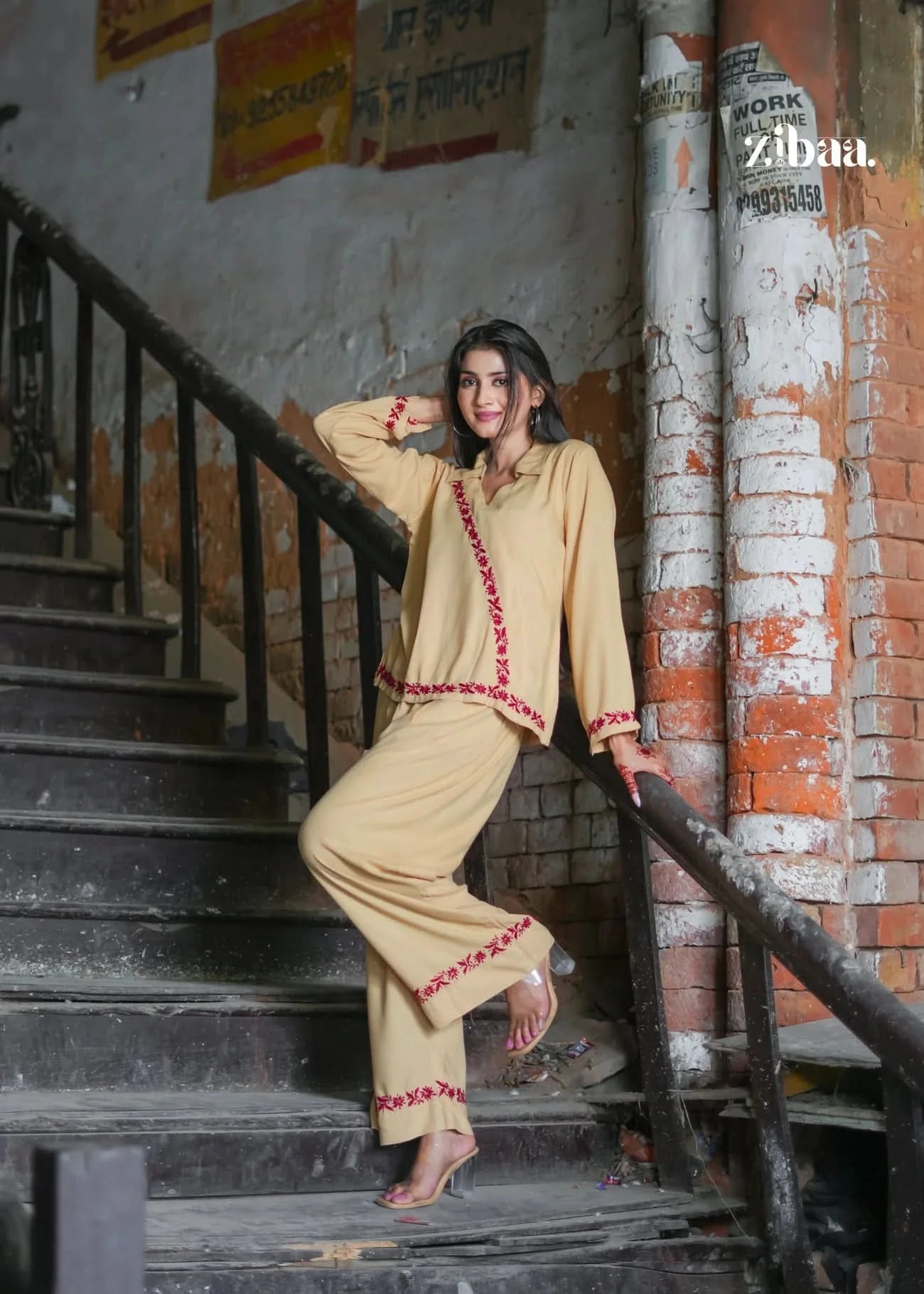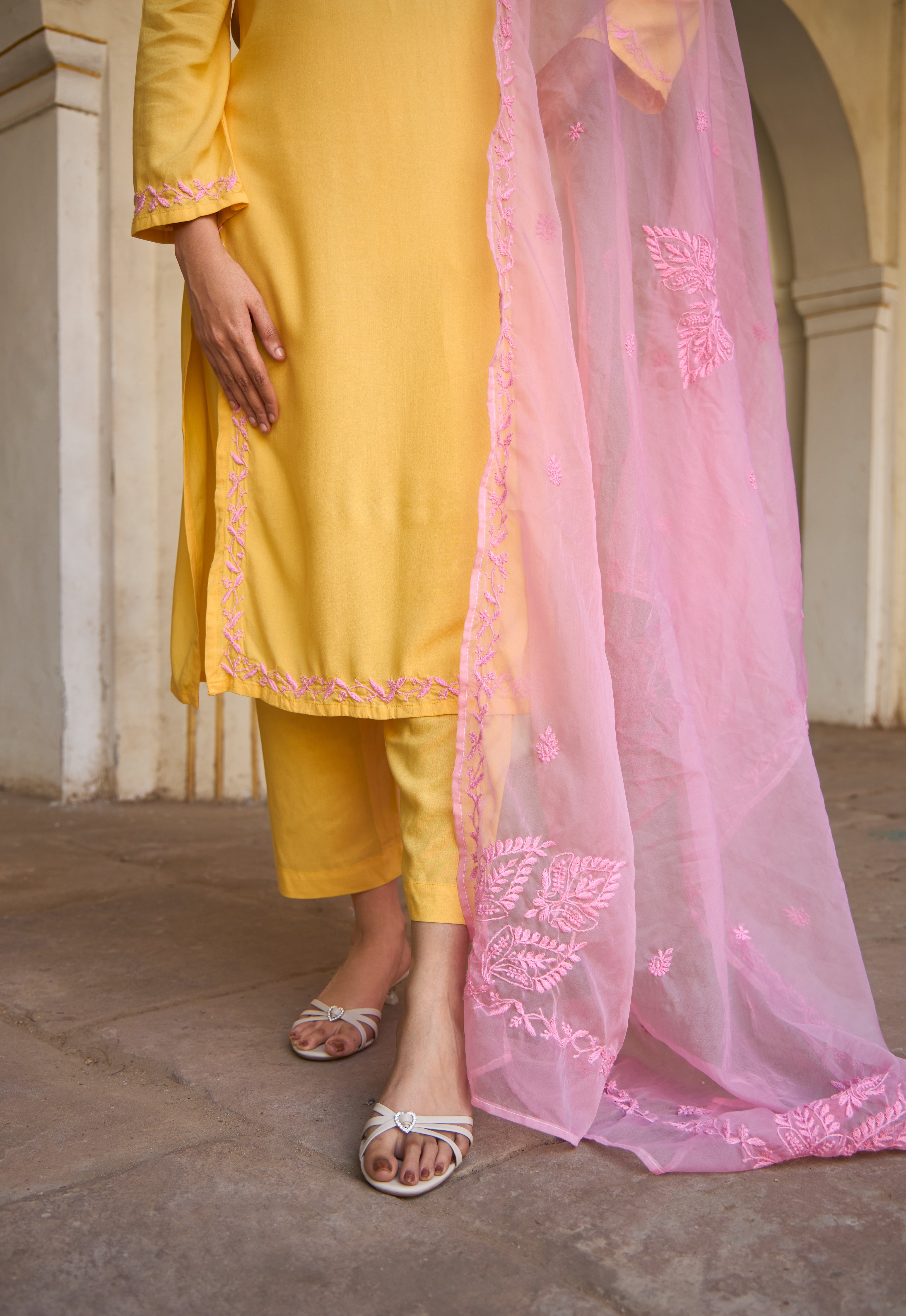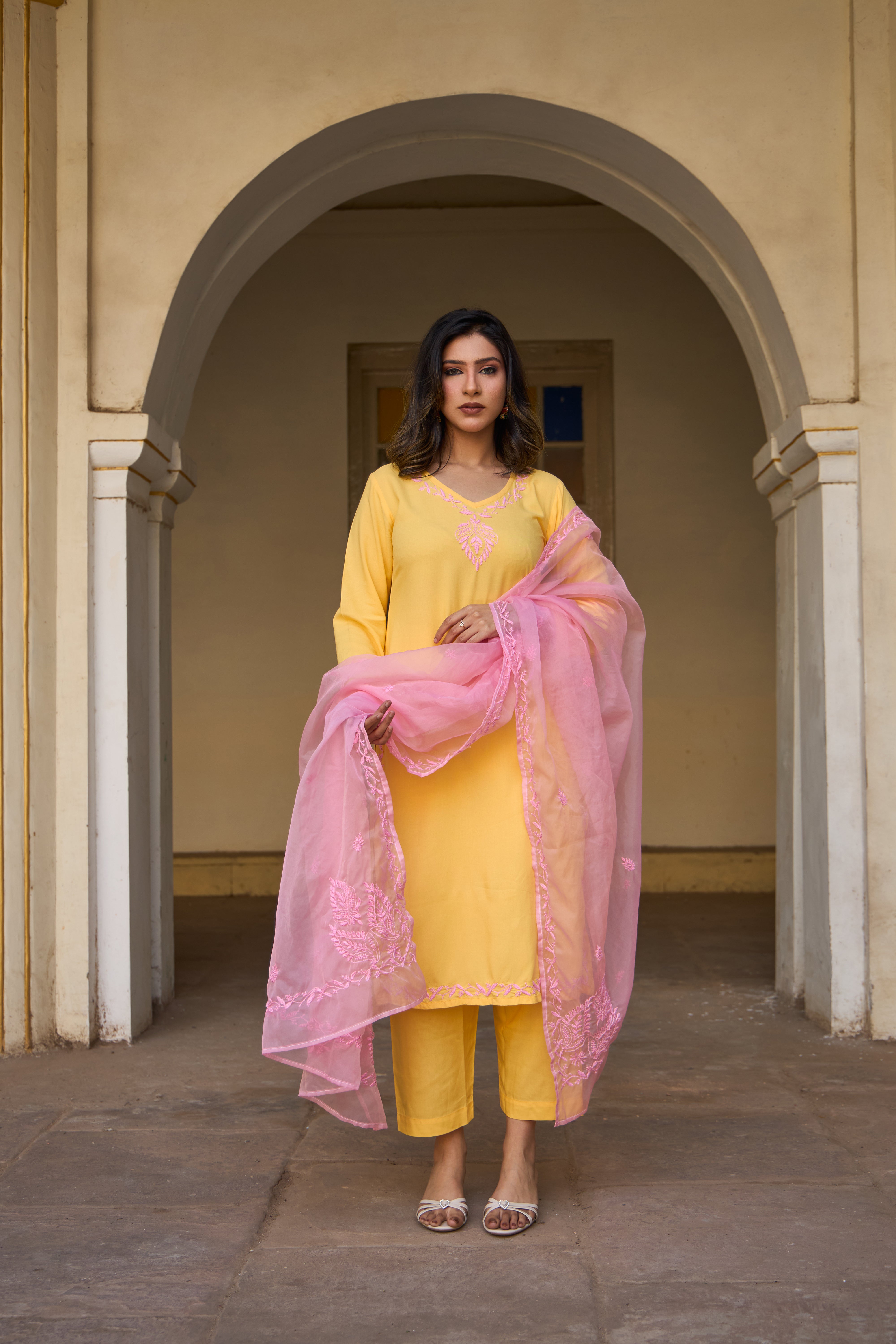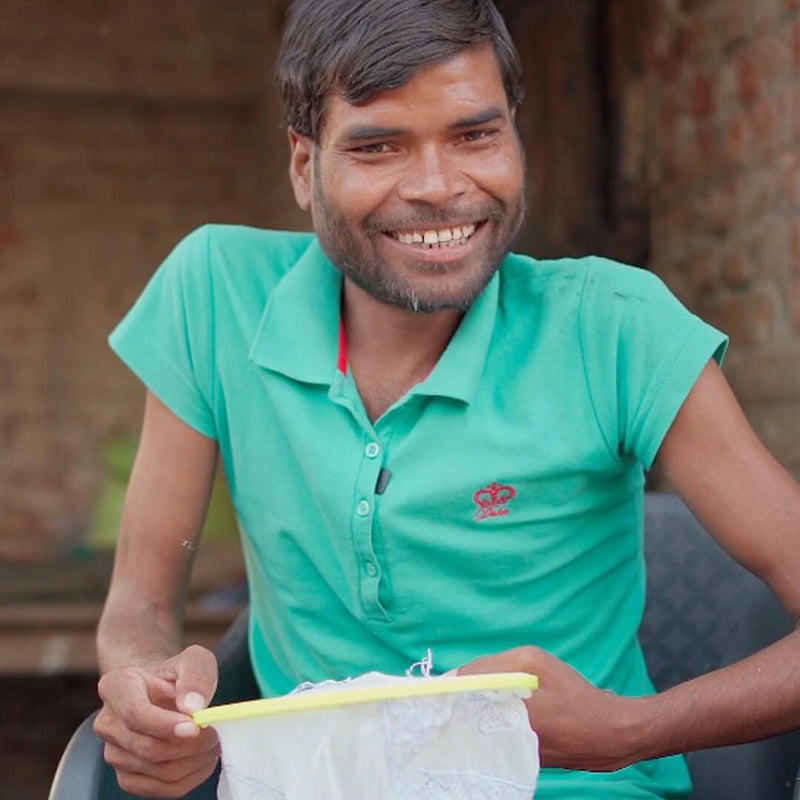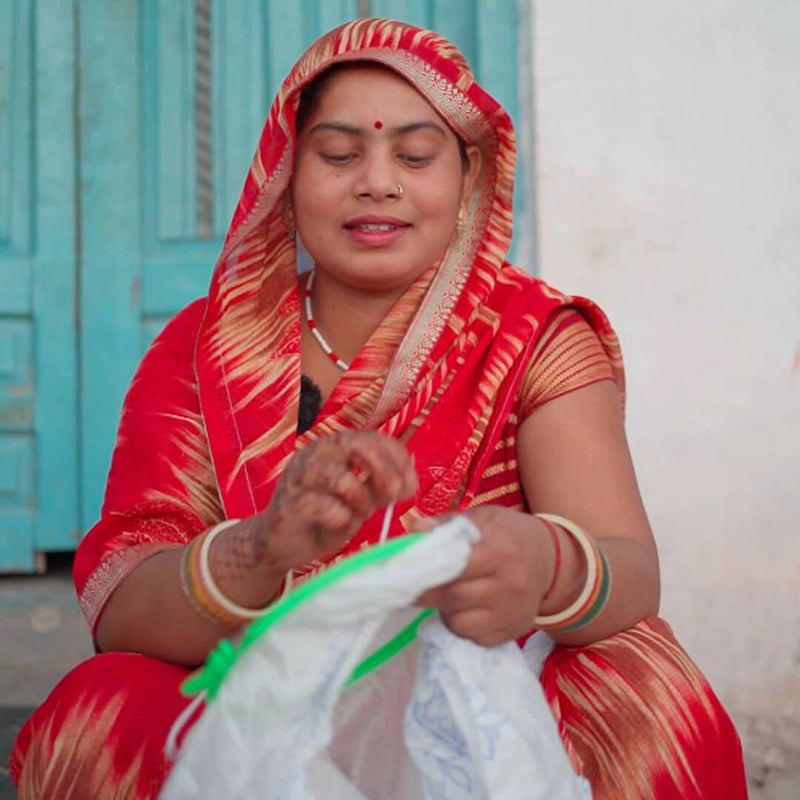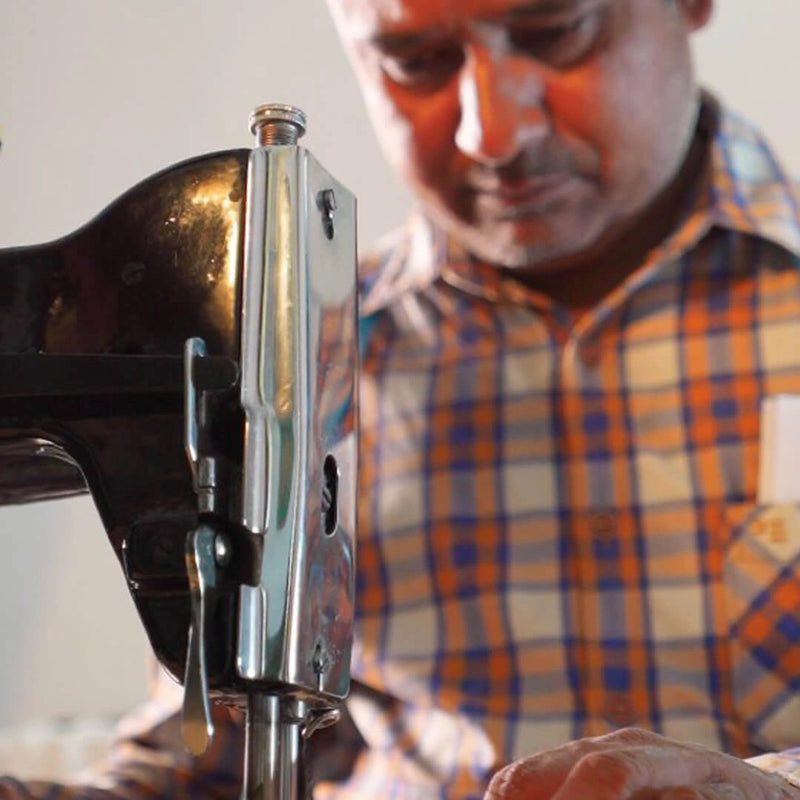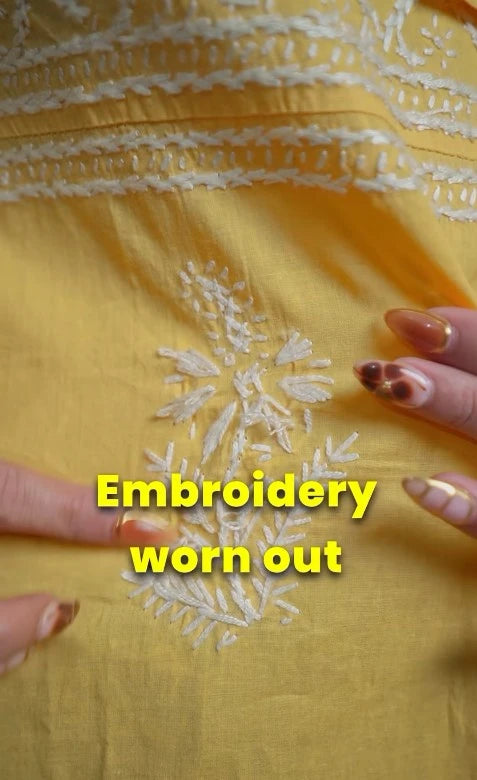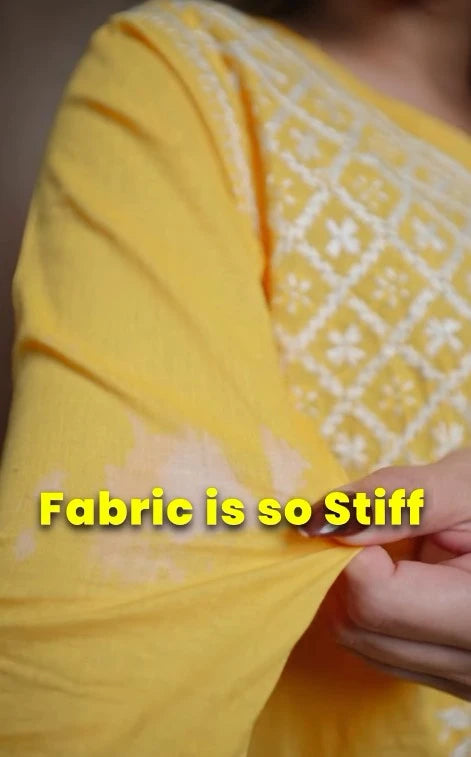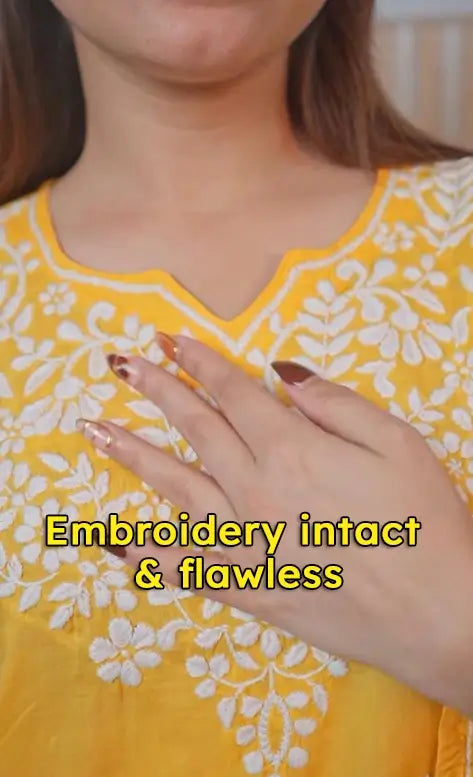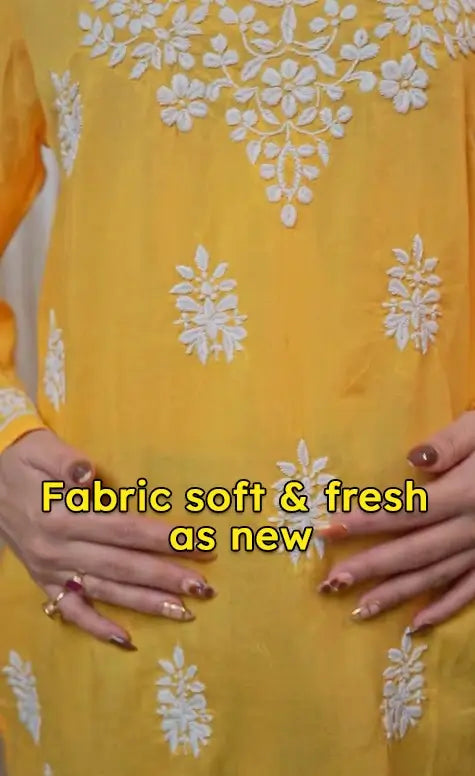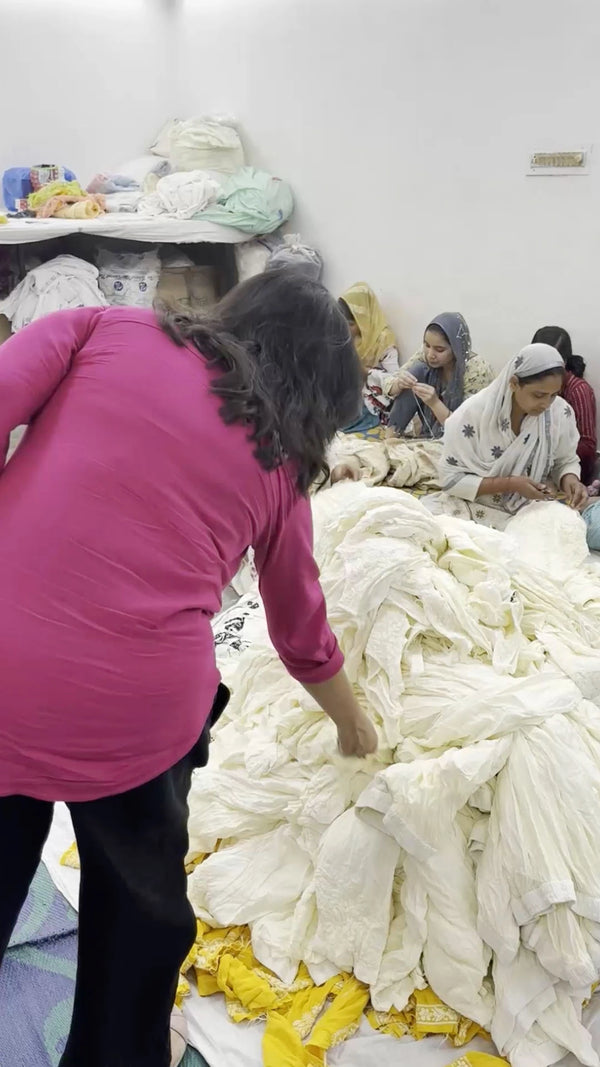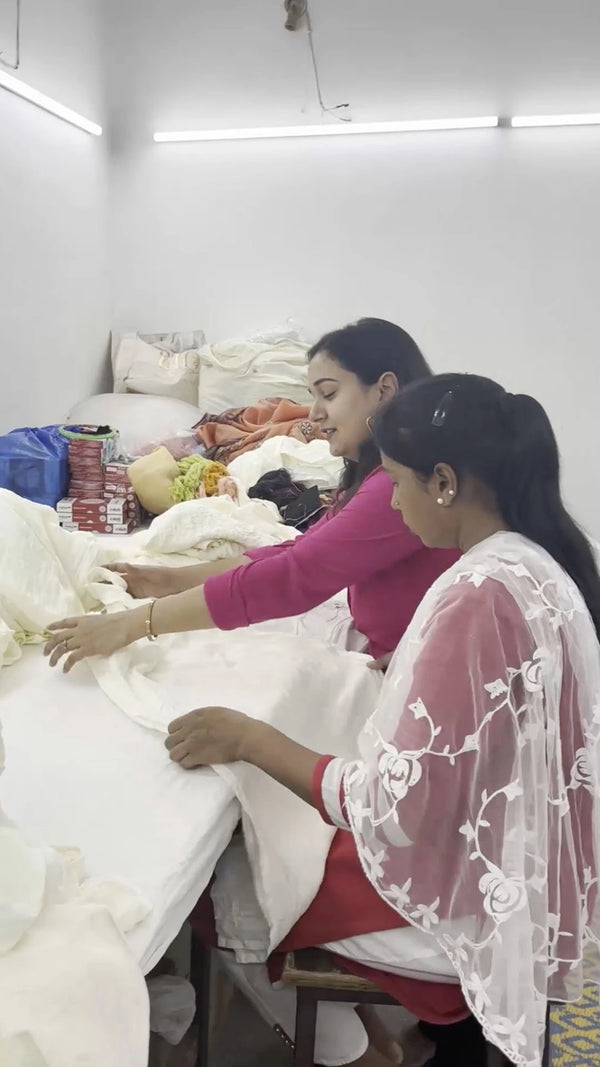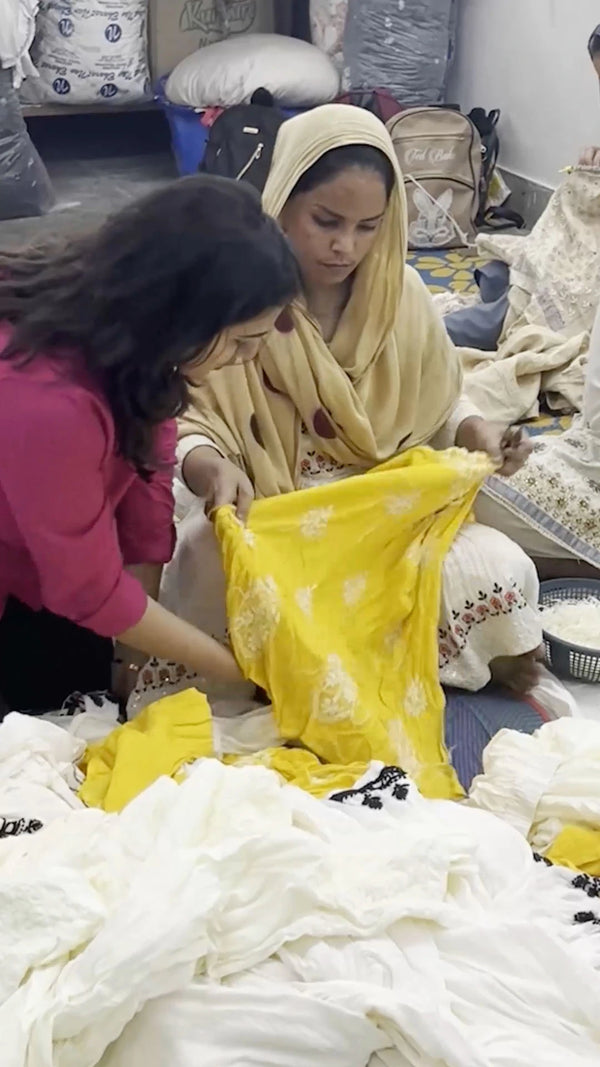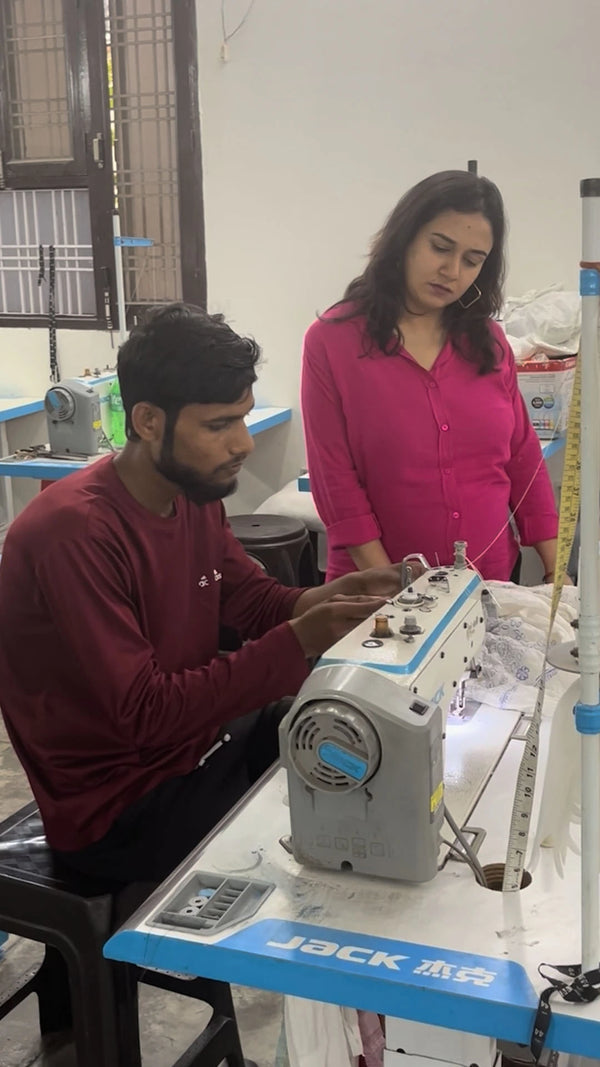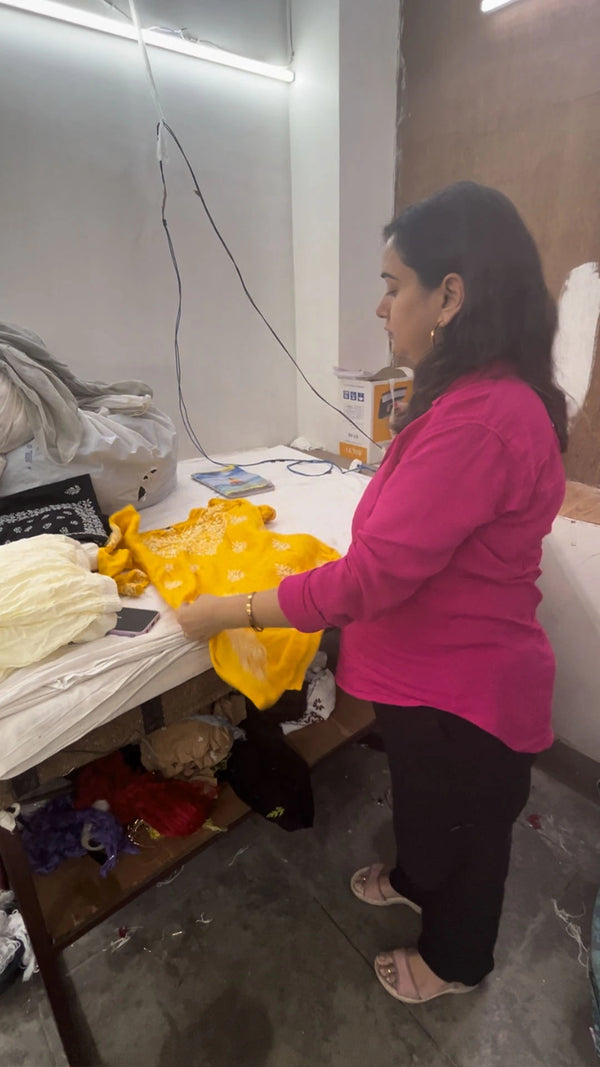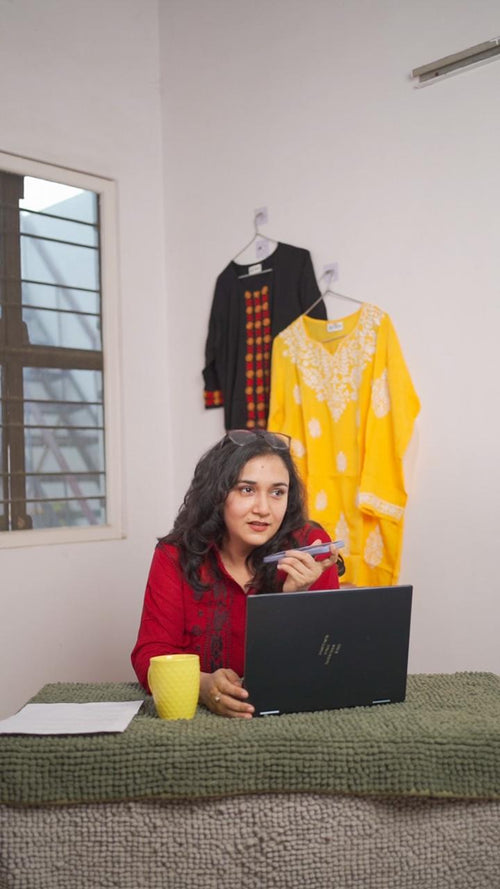The Buyer’s Checklist: Real Chikankari vs Machine Embroidery
Frequently Asked Questions
What is the process involved in making a chikankari co-ord set?
The process starts with placing the fabric on a wooden block frame and stretching it tightly. The design is then marked on the fabric either using pencil or perforated paper. The embroiderers work with fine white thread and needle to create beautiful floral, geometric and vine motifs following the outline.
Is the Chikankari co-ord set available on Zibaa entirely hand made?
Yes, the chikankari co-ord sets on Zibaa are entirely handcrafted. From fabric selection to embroidering the motifs, each step is done meticulously by skilled artisans. No machines are used in the making which allows for finesse and delicacy unmatchable by machine work.
What are the different stitches used in making the co-ord set?
Some of the main stitches used in chikankari kurtas are: Jaali - delicate net-like fillings Bakhiya - Shadow work using the back stitch Murri - Dense fillings in geometric patterns Pashni - Small straight stitches used for outlines Pechni - Solid fillings worked in vertical, horizontal or diagonal rows
What fabric is used to make a chikankari co-ord set?
Traditionally, chikankari was done on soft and delicate muslin called tanzeb. Now, apart from muslin, voile, cotton, silk, chiffon and other fine fabrics are also used as base material. The fabric needs to be lightweight enough for the intricate needlework.
What colors are commonly used in chikankari embroidery?
White is the most traditional color used for chikankari because of its delicate aesthetic. However, pastel shades like yellow, pink, blue, green and mauve have also become popular. Contemporary pieces use brighter hues as well.
Is chikankari work done only by hand?
Yes, authentic chikankari relies completely on hand embroidery. The finesse, delicacy and attention to detail achieved by handwork is unmatchable. Machines are unable to recreate the nuances and artistry of hand embroidery. From start to finish, every process in chikankari is done manually.
How can I take care of my chikankari suit set?
Dry clean the set to preserve the fabrics and embroidery. Store covered in cloth bags away from moisture and harsh sunlight. Iron inside out on low heat by placing a cloth over the embroidered part. Avoid keeping in dusty places as embroidery can get soiled.
How should I wash my chikankari co-ord set?
It is best to dry-clean chikankari fabrics to preserve the delicate embroidery. If washing at home, hand wash gently in cold water using a mild detergent or soap. Do not wring, scrub, bleach or wash vigorously as it can damage the fabric and stitches.
Can I iron my chikankari suit set?
Yes, you can iron chikankari fabric on low heat by turning it inside out and placing a cloth over the embroidered side. Avoid direct contact with the hot iron on the embroidery. Iron gently applying minimum pressure to prevent crushing of embroidered motifs.
How to get rid of stains on my chikankari kurta?
Dab the stain gently with a clean cloth dipped in cold water or use a mildly diluted detergent. Avoid rubbing or scrubbing the embroidered area aggressively. For tougher stains, take it to a professional cleaner.
What is the best way to store chikankari suits?
Store chikankari in cloth covers or bags away from moisture, heat, and direct sunlight to prevent discoloration. Keeping them boxed with naphthalene balls also works well. Make sure they are dry cleaned before storing.
How should I handle the embellishments on my chikankari ensemble?
Check for any loose or dangling embellishments before wearing. Avoid catching them on sharp objects or jewelry to prevent snagging and falling off. Dry clean only with all embellishments secured in place.
Can I use a sewing machine on my chikankari garment?
It is best to avoid sewing machines as the needle pressure can damage the delicate hand embroidery. All repairs and alterations should be done by hand to retain the artisanal work. Take help of a skilled tailor or embroiderer for any mending work required.
How can I make my chikankari last longer?
Follow care instructions and proper storage methods. Avoid exposure to harsh chemicals, dyes, and bleach. Protect from abrasion, pulls and snags during wear. Dry clean frequently to prevent soiling and discoloration.
What kind of dupatta styles can I try with my chikankari co-ord set?
You can drape the chikankari dupatta in many graceful styles like the simple shoulder drape, central drape, criss cross front drape, half saree style, Arabic style, etc.
What jewelry combinations will look good with a chikankari co-ord set?
Opt for delicate gold or polki jewelry like jhumkas, chandbalis, naths and kadas. Beautiful stone or pearl sets also complement the intricate chikankari work. For necklaces, wear simple gold chains or multi-layered long necklaces.
How can I style my chikankari co-ord set for a festive look?
Pair it with a rich silk or brocade skirt, cigarette pants or sharara. You can also try it with a contrasting dupatta. Statement earrings, gajra, kolhapuris and a potli bag lend a festive vibe. Play with hairdos like braids, buns or waves.
What footwear options go well with chikankari co-ord set?
Mojaris, khussas, kolhapuris, juttis and ethnic footwear like embellished heels, wedges or bellies complement chikankari ensembles. You can also wear strappy sandals, pencil heels, or block heels in neutral shades or pastels.
How can I style chikankari for a modern indie look?
Pair it with denim shorts, palazzos or harem pants. Try shrugs, cropped jackets or longline blazers on top. Wear brogues, loafers, or white sneakers below. Keep makeup natural and fuss-free.
What are some styling tips for petite body types?
Opt for calf or ankle length kurtas with churidar leggings or cigarette pants. Avoid long flared kurtas or voluminous silhouettes. Stick to minimal prints and embroidery.
What offers are currently available on Zibaa's chikankari co-ord sets?
Zibaa has an exclusive offer of extra Rs. 200 off on prepaid orders with no minimum order value. This offer can be availed on the trending chikankari co-ord sets like the Sahar Lilac Rayon, Sahar Muslin Black & White and Sahar Ivory Muslin sets.
Is there a minimum order value to avail the prepaid discount?
No, currently Zibaa has no minimum order value to avail the additional Rs. 200 off on prepaid orders. You can get the discount even on purchasing a single chikankari co-ord set by making the payment upfront.
How long will the prepaid discount offer be valid on Zibaa?
The offer of getting Rs. 200 off on prepaid orders is valid for a limited period. We recommend placing your prepaid orders at the earliest on Zibaa to grab the discount.
Can I use this offer with any other ongoing discounts or sales?
No, the additional Rs. 200 off is applicable only on selecting the prepaid payment option. Only one offer is redeemable at a time.
Is this prepaid offer applicable on all products or only chikankari sets?
As of now, the exclusive discount of Rs. 200 on prepaid payment mode is applicable sitewide on all products including the chikankari co-ord sets.
How do I place an order for a chikankari set on Zibaa?
You can easily place your order on the Zibaa website or mobile app. Just select the desired chikankari set, choose your size and add it to the cart. Proceed to checkout, fill in the required shipping details and make payment to complete your order.
What are the available sizes for the chikankari co-ord set on Zibaa?
Zibaa offers chikankari sets in standard Indian sizes ranging from XS to XL. Some styles are also available in plus sizes up to 4XL.
What are the different payment methods available on Zibaa?
Zibaa accepts payment through credit cards, debit cards, net banking, UPI and popular wallets. Cash on delivery can also be chosen for orders.
Does Zibaa provide international shipping?
Yes, Zibaa ships chikankari sets and other products worldwide through reputed courier partners. Shipping costs are calculated at checkout based on your location.
What is the estimated delivery time for chikankari suit orders?
The estimated delivery time is 3-5 working days through reputed courier partners.
Meet the Chikankari Artisans Behind the Craft
One year challenge : Zibaa vs Others
How does your Zibaa kurti fare vs other chikankari kurtis after one year


